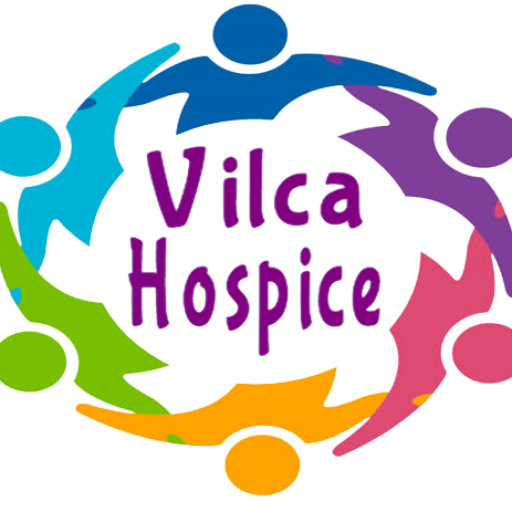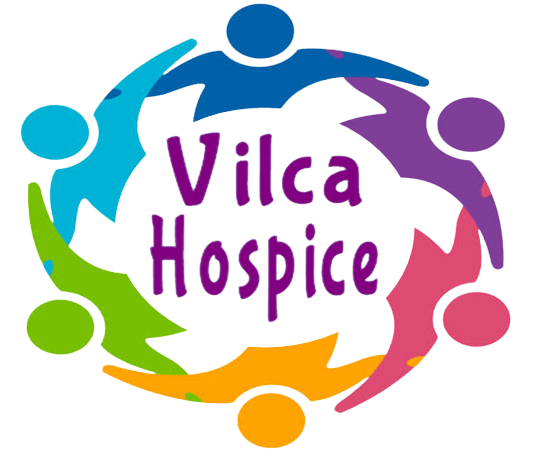Vilca Dying
What Expats Need to Know

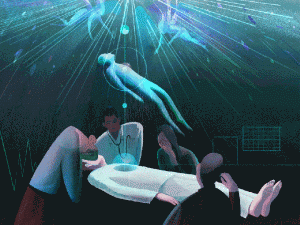
Introduction
You do NOT need the information on this page IF you:
- Live alone.
- Have no family or animals in Ecuador.
- Do NOT care if anyone is notified of your death.
- Do NOT own property in Ecuador.
- Do NOT have more money in an Ecuadorian financial institution than you are willing to donate to Ecuador.
- Do NOT have more assets like cash, jewelry, art or furnishings than you are willing to donate to your neighbors and/or Ecuador
- Do NOT care what happens to your physical body when you die
Then – NO problem – Nothing to do – You’re good to go!
Consequences:
- When you die your financial assets will be given to Ecuador, if no one claims them in 6 months.
- Your personal assets will probably be taken by your neighbors or Ecuador.
- Your body will be placed in the morgue in Loja for 30 days to 6 months, then it will be placed in a mass grave in the Loja landfill or possibly donated to the local medical school.
If the above does NOT describe your situation, then at least some of the following information should come in handy.

Table of Contents
For those of us from North America, end-of-life issues are different in Ecuador you will learn here. Different laws, legal documents and procedures; customs; medical treatment, expectations and facilities; emergency response and more. Knowing those differences can save you much energy, time, money and heartache (and even your life) at a time when you and your caregiver are probably already stressed.
Vilca Dying is meant to be a referral resource, predominantly for expats from the US, however, much applies to anyone living in Ecuador. Laws in Ecuador change frequently, without notice and all government employees do not interpret the laws in the same way, adding to the confusion. Often doing this research I would find two, three and even four different answers to the same question. We have done our best to present the information as accurately as possible, at the time it was compiled (October 2019). We plan to continue to update the page or when laws change, if possible.
A special thanks to Cuenca Medical Resources for their informative website, all the editable forms available there and for allowing us to adapt their Disclaimer. Also, special thanks to the Vilcabamba Hospice Team that has been quietly working so diligently all these years. Their contribution to this resource page is much appreciated. Particular thanks to Phyliss Rawley, Ulises Acosta, Dra. Sonia Romero, Karen Varney and Jenice McAlevy for their input and support. Also special thanks to my husband, Parker Whitman, for his creative cartoons, meant to “lighten” this difficult subject.
If you notice any errors, omissions, broken links or discrepancies, please let us know as soon as possible at Caryl@VilcaHospice.com I repeat, this a work-in-progress project.
Caryl Dennis
Preparing for the Inevitable
It’s your Right & Responsibility
to Arrange for Your Final
Body Disposal, Business & Belongings
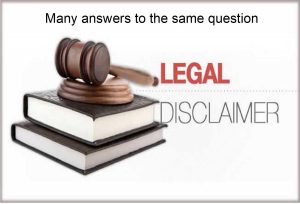
Disclaimer
Information and laws change frequently in Ecuador. This information is as accurate as possible at time of compiling, 11/2019. Our goal to review and update information annually or when laws change, if possible.
The information, including but not limited to, text, graphics, images and other material contained on this page are for informational purposes only and the accuracy of this information is not guaranteed. The purpose of this page is to provide a better understanding and knowledge of some legal, medical healthcare related and other services in Vilcabamba, Ecuador that may be available in English. It is not intended to be a substitute for professional medical or legal advice, diagnosis or treatment. Always seek the advice of your physician or other qualified health care provider with any questions you may have regarding a medical condition or treatment and before undertaking a new health care regimen, and never disregard professional medical advice or delay in seeking it because of something you have read on this website. No liability will accrue to the website owner or its associates in the event that a user suffers loss as a result of reliance upon the information.

Before
Basic To Do List
- Complete Important Information Worksheet
- Complete Important Legal Information Worksheet
- Complete Power of Attorney Form – Get Agreement from POA
- Make Appointment with an Attorney– Create Documents, take all of the above forms with you.
- Create an Important Papers Packet– securely store all original documents, passport, cedula. Create another Important Papers Packet – copies for Power of Attorney, if not spouse.
- Create an Identification Card, laminate – carry with you
- Make 3 Color Copies of Passport, Cedula & Identification Card – one all on one page – keep handy at home (i.e. on refrigerator), one Important Papers Packet, Carry one laminated version with you.
- Make Doctor Appointment (so they could sign your Death Certificate when needed, i.e. Dra. Sonia Romero or Dr. Ashraf Saber $30)
- Arrange for Payment of Disposition– Notify Executor (i.e., Open account at CACPE)

If you have immediate Hospice needs
Complete the Patient Assessment and email to admit@VilcaHospice.com
Someone will get back to you shortly.
Matters to Consider
- Are you living alone? If so, do you have friends who can follow through with your wishes if you die?
- Do you have a physician available who can be called immediately and declare cause of death to obtain a death certificate so an autopsy can be avoided (unless foul play is suspected)?
- Which funeral service or transporter will collect your body?
- Do you want your organs donated?
- Do you want to donate your body to an Ecuadorian medical school?
- Do you want to be cremated or buried?
- Have you chosen a funeral service or crematorium to handle your remains?
- Do you want your ashes or remains shipped home?
- Do you want your remains to stay in country?
- Who will be in charge of your affairs in the immediate aftermath of your death?
- Who will deliver the legal documents with your wishes to the crematorium or funeral home, obtain the Ecuadorian government declaration of death with appropriate stamps from the Civil Registry and the Ministry of Foreign Affairs?
- Who will obtain the proper documents from the U.S. Embassy or U.S. Consulate if remains will be going home?
- If you are married, do you have an original Marriage Certificate?
- Any end-of-life US documents you may have are NOT valid in Ecuador. Source
US End-of-Life Documents
Your US end-of-life documents are NOT valid in Ecuador. You can take them to your Ecuadorian attorney for reference, but they will not be honored here.
If you own property in US and Ecuador, your US Will should refer to both the property in Ecuador and the existence of the Ecuador Will as an addendum (a copy of which should be attached to your US Will) along with directions to your Ecuador attorney who prepared the document.
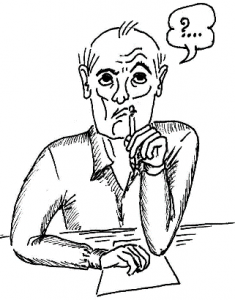
Important Information Worksheet
The first step in planning for your death is getting all your important information in one place. It is essential that your Executor/Personal Representative(s) has access to your important information in order to be sure your wishes are honored and to complete your business after your death. This is a big responsibility you are asking someone to take on, so it would behoove everyone for you to be prepared.
Beyond that, some say, if one’s business is taken care of prior to death, they have a more peaceful death experience. No one really wants to be a burden. It is your right and responsibility to plan for your body disposition, belongings and business.
A good place to start is by completing the Worksheet that is easily done on line and can be downloaded to your computer, saved and printed.
- Give copies to: your Executor/Personal Representative(s)/Power of Attorney, and/or trusted friend who lives locally.
- Send a copy to trusted loved ones back home.
- Take it to your attorney to create your documents.
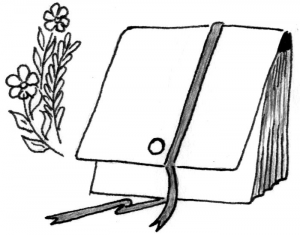
Important Information Packet
Create an Important Information Packet that is kept handy in your home for your Personal Representative containing:
- Your Worksheet
- End-of-life documents: Will, Power of Attorney, Documentacion Juramentada (US and Ecuadorian)
- Color copies of your Passport and Cedula, on the same page and separately (this will be needed when your body is picked up and/or for emergency responders)
- Medical History Document(this is needed if emergency medical personnel are involved)
Put all original end-of-life documents (that aren’t kept by the Notary) or copies, along with your original passport and cedula, Medical History, Worksheet and any other important documents, in a secure place known to your Personal Representative(s).
Important Information Worksheet – (Immediately downloads to your computer.)
Medical History Guidelines & Forms
Your Medical History document is for any emergency medical personnel assistance you might require. These Guidelines will help you complete the Medical History form in Spanish.
These Forms are editable .pdf (Spanish).
Here is the form in English. I would recommend doing both.
Place a copy in your Important Papers Packet and with your original documents.
Spanish-English Dictionary: The Human Body
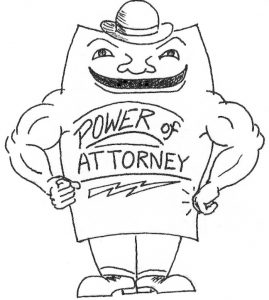
Personal Representative/Power of Attorney/Executor/Albacea
One of your first and very important decisions is who will be your Personal Representative/Power of Attorney/Executor/Albacea to handle your business and make medical decisions for you, should you be incapacitated and unable to make your own. You will need to identify at least two people; one probably your spouse, if you have one and another person that lives locally and maybe one back home,that you trust.
A “Power of Attorney” handles your business when you are alive, if you can’t, via a Power of Attorney document and an “Executor/Albacea” takes over after your death via a Will or Affidavit. (They can, and often are, the same person.)
You will need to get your appointees prior approval and agreement to accept the responsibilities. (You might want to agree to do the same for them to encourage them to do it.) Here are some of the responsibilities they will be responsible for after your death. Source
You will want to choose a Medical Power of Attorney who is willing to be pro-active and be sure that your end-of-life wishes are honored.
Keep in mind that Powers of Attorney cease to be valid upon your death. Cremation or burial or after death financial matters need to be indicated in an Affidavit or Will.
NOTE: Some Power of Attorney documents are only valid for ONE YEAR. You will need to renew them annually with an attorney and notary and have them recorded again.
Here is a form to help guide you through the decision making process.
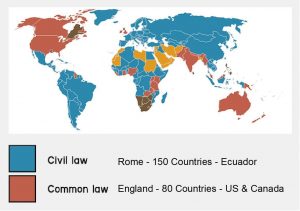
Ecuadorian Legal System
Common Law vs Civil Law – How that might affect you
The legal system in Ecuador, which uses Civil Law, can seem very confusing and different to expats, especially those from North America who are used to Common Law. Here is a good article about the differences. Here are some of the main differences:
Common Law | Civil Law |
North America, US (except Louisiana & Quebec), Canada, Australia, England, India | Ecuador, all of South America (except Guyana), almost all of Europe including Germany, France, Spain, China and Japan. |
Based on British Law | Based on Roman Law |
Based on case laws or legal precedents. Prime importance given to prior judicial decisions. | Based on coded laws, or enacted legislation, judicial statutes are of primary importance. |
Refers extensively to statutes, judicial cases are considered the most important source of law, allowing judges to pro-actively contribute to rules. For consistency, courts abide by precedents set by higher courts examining the same issue. | Codes and statutes are designed to cover all eventualities and judges have a more limited role of applying the law to the case in hand. Past judgments are no more than loose guides. |
Judge or jury acts as mediators or arbitrators | Judges build case facts to pass ruling based on laws |
Counties | Parishes |
In the US you can write a Will on a napkin and it is legal. The act of writing a new will allows the new document to supersede the old. Wills in the US are not typically recorded. | Ecuadorian legal documents are NOT a “do it yourself” proposition. In Ecuador an attorney must create the Will that is then processed by a Notary and recorded in the Civil Registry. It can be changed, as long as a new document is created by a lawyer and the recording process is repeated with a Notary. |
Notary’s primary role is to serve the public as an impartial witness when important documents are signed. Since the notary is a state officer, a notary’s duties may vary widely from state to state and in most cases bars a notary from acting outside his or her home state unless they also have a commission there as well. In some states they can perform marriage ceremonies. | Notaries have a much more important role. They generally hold undergraduate degrees in civil law and graduate degrees in notarial law. Ordinarily no authority to appear in court on their client’s behalf; their role is limited to drafting, authenticating, and registering certain types of transactional or legal instruments, i.e. residential and commercial conveyancing and registration, contract drafting, company formation, successions and estate planning, and powers of attorney. |
Legal documents do not typically expire in the US, except for a Power of Attorney that expires on death. | It’s important to be aware that most documents in Ecuador, other than a Will, have expiration dates of a year or less. A Power of Attorney is good for one year. |
Biggest difference – Unlike a spouse, a child generally has no legally protected right to inherit a deceased parent’s property. Ownership of property acquired during the marriage is not automatically assumed to be half and half – laws vary by state. It will usually be determined who property and assets belong to by the name on the title of the property, or by determining which spouse’s income purchased it. Prenuptial agreements can apply. | Ecuadorian law of inheritance is 50% to a surviving spouse and 50% divided equally among the deceased’s blood children, then parents, then siblings, then nephews. If none, the spouse could receive 100% via probate. If you create a Will that says something other than that, it will NOT stand if any blood relatives contest it. |
It is often necessary to probate a will, which involves a court application and often the payment of substantial probate fees and much time and energy. | There is no need for probate of a notarized will. It can be used immediately to administer an estate and to obtain access to assets, after estate taxes are paid. |
More options for ownership. | There are fewer uses of Will substitutes under civil law. i.e., There is no joint ownership with right of survivorship. |
Trusts are common | Trusts are not typically recognized |
Presumed innocent until proven guilty | Presumed guilty until/unless the judge decides otherwise |
Healthcare Directive/Living Wills/5 Wishes or stated end-of-life wishes are honored. | US end-of-life documents are NOT honored. Wishes can be stated in an Ecuadorian Affidavit or Will, but an active Power of Attorney with medical authority is required and may or may not be honored. |
Organ donation is NOT automatic | Organ donation is automatic, if possible, unless stated in a legal document or on your cedula. |
Prescriptions required for most pharmaceuticals. | More personal responsibility, i.e. most pharmaceuticals do not require a prescription or even a doctor visit. |
Liability lawsuits common | Liability lawsuits uncommon. More personal responsibility – pay attention to where you walk. |
More “Freedom of Speech” | Ecuadorian law takes slander or dishonoring of a person or business very seriously. Denuncia’s (complaints) can be filed that can hold serious consequences. |
Pedestrians have right of way | Cars have the de facto right of way in Ecuador |
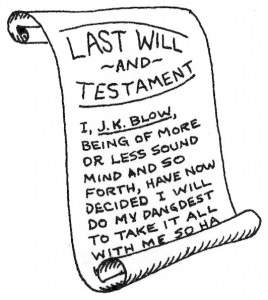
Will
A Will, called a Testament, is a legal statement by a testator concerning disposition of property and other assets, appointments of guardians, funeral arrangements, desire for cremation or burial, etc., to take effect after his death. You will name an Executor (“albacea” in Spanish) and backup Executors to handle your business after your death.
To make a Will you must be of age (18) and in full possession of mental faculties.
This is NOT a do-it-yourself proposition – you must hire an attorney and have it registered with the Civil Registry by a Notary. The testor retains the right to revoke the provisions in the testament anytime during his or her life.
Wills for Expats are worthwhile IF an Expat has property in Ecuador – i.e. bank accounts, real estate, cash, gold/jewelry, art/collectibles, etc.
The Will needs to include the full name, birthplace and date and place of residence of the testator. As well as its age, the persons to whom you may have been married, the children had in each case with a distinction of those who have died.
The wife automatically owns half of all property unless otherwise stipulated in a formal way. The children own the other half. The Ecuadorian legal system establishes the children as mandatory heirs. In their absence it’ll be the parents, the siblings, the nephews and the state in that order. If a person’s Will leaves all of his or her property to his or her spouse, the Will works fine UNLESS even one child contests the Will. If they do, the testament will not be valid.
Ecuadorian Law automatically assigns heirs as follows:
*The spouse is not a heir. He / She OWNS 50% of the assets purchased within the marriage unless there was a prenuptial agreement. The spouse does NOT have rights over assets purchased before the marriage or inherited by the deceased.
Therefore all there is left to be inherited is the other 50% of the assets purchased by the couple within the marriage. This 50% is divided into 4 parts:
- 2 parts (25% + 25% = 50%) which to be inherited by the children
- 1 part (25%) is “cuarta de mejoras” which can be assigned amongst the children as desired
- 1 part (25%) as desired to any person or organization
*When a person dies unmarried and without children, if they have an estate, it passes to relatives up to the fourth degree of consanguinity. If this scenario does not occur, the assets go to the State.
- First degree of consanguinity
- Kids – if N/A, then “b”
- Parents
- Second degree of consanguinity
- Grandparents – if N/A, then “b”
- Brothers – if N/A, then “c”
- Grandchildren
- Third degree of consanguinity
- Uncles – if N/A, then “b”
- Nephews
- Fourth degree of consanguinity
- Cousins – if N/A, then “b”
- Great uncle/aunt
Before the estate can be transferred upon death, inheritance taxes must be paid.
If you own property in US and Ecuador, you will most likely need a Will in both countries.
There are two kinds of Ecuadorian Wills: Open and Closed. The basic difference is a Closed Will will be kept by your notary and no one will have access to the contents until after your death (unless you personally share it). Also a Closed Will is more expensive and requires 5 witnesses rather than 3. You may need to read Spanish to qualify for an Open Will (maybe, some Notaries interpret the law differently).
To grant an Open Will, it is required:
The appearance of the testator, (over 18 years old) carrying an identity card or passport
The presence of 3 witnesses, with the corresponding identification
The cost is $ 100.00 US dollars
Note: You may need to be able to speak and read Spanish to do an Open Will.
To grant a Closed Will, it is required:
The presence of the testator, (over 18 years old) carrying an identity card or passport;
The will will be kept in a sealed and sealed envelope in the presence of the Consul
The presence of 5 witnesses with the corresponding identification
The cost is $ 150.00 US dollars
Both the open and the closed will can be annulled or replaced by the testator, as long as he lives and stays in enjoyment of his mental faculties, at any time, for which he must present himself at the Consulate with his identification.
The cancellation or replacement of an open or closed will, respectively, has a cost of US $ 50.00. Source
NOTE: A Will, valid indefinitely, is one of the few Ecuadorian documents that doesn’t have an expiration date.
Apparently, some Notaries have a preference for a Closed vs Open Will or vice versa. There seems to be confusion around this issue. (I have heard some Notaries don’t want the responsibility of holding your Documents safe, like they are required to do with a Closed Will.) You will need to follow your attorney and their Notary’s procedures. (Apparently, Attorneys usually work with the same Notaries, so they know their preferences.)

Power of Attorney
Poder, or Power of Attorney, is a document used to appoint someone to make decisions on your behalf should you become incapacitated or cannot communicate. It is important to consult a lawyer who will assist you with developing this document to cover all circumstances that may arise should you be unable to take care of yourself.
NOTE: Many Power of Attorneys expire in one year!
At time of death, a Poder (Power of Attorney) ceases to be valid and your appointed Poder representative will no longer be able to carry out the duties set out in this document on your behalf. Your Executor named in your Will or Documentacion Juramentada (Affidavit) will then be responsible.
A Power of Attorney is NOT for appointing someone to handle your cremation or burial – only to handle things while you are alive, but unable to do so yourself.
This Power of Attorney Worksheet is editable and will help you make decisions about who you wish to have which responsibilities. Take it to your attorney.
Types of Powers of Attorney
General Power of Attorney:
Document through which a person gives authorization to another person to perform all sorts of arrangements on its behalf . (These are not recommended unless you completely trust the individual you are granting this authority.)
Medical Power of Attorney:
Authorizes another person and alternate to make medical decisions for you should you be unable to make them yourself.
Special Power of Attorney:
Document through which a person gives authorization to another person to perform specific arrangements on its behalf.
General or Special Power of Attorneygranted by a legal entity:
Document through which a Legal Entity, though its legal representative, authorizes another person to perform arrangements on its behalf.
Power of Attorney Revocation:
Document through which an issued power is revoked.
More details here Source
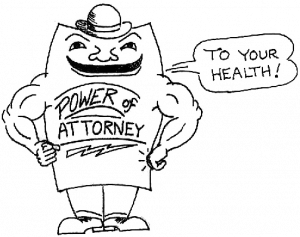
Healthcare Directive/Living Will/ Affidavit/Documentacion Juramentada
Keep in mind that Ecuadorian law does not recognize “Living Wills” like they do in the US. In Ecuador one can state their end-of-life wishes in a Will or Constancia, Documentacion Juramentada or Declaración de voluntad(Affidavit or A Sworn Documentation) and it may or may not be honored when the time comes. A pro-active caregiver is required usually.
If you wish to be cremated, and do not want your organs donated, you will want to make that known some where. You can state your preference for cremation or burial in your Will. Your organ donation preference is usually registered at the Civil Registry when you receive your cedula. Legal spouses, however, can authorize cremation at the time of need, without prior, written authorization from the deceased. You can prove authority if your cedula names the spouse or you have an apostatized Marriage Certificate.
Note that your Advanced Health Care Directive, Living Will or your Five Wishes (legal in almost all U.S. states, see www.AgingwithDignity.org ) are not valid in Ecuador even if notarized, apostilled and translated into Spanish. The U.S. and Canada use common law, a system of English law. Ecuador is governed by civil law. Again, your North American documents will not be recognized. It will require a pro-active Medical Power of Attorney to ensure your wishes are met.
Show your US documents, if any, to your Ecuadorian attorney for direction.
If you haven’t created your last wishes document or considered your options, here is an editable documentto guide you through the decisions.
More information about Affidavits
Here is a sample Documentacion Juramentada – English Translation:
In the City of Loja, capital of the Province of Loja, Republic of Ecuador, the day of …………….
Before me, …………… Notary / o ……… of the Canton Loja, Appears, Mr. / Mrs. ……… The appearing one is of nationality …… … (single / married / divorced) domiciled in the neighborhood … ………… From the parish of Vilcabamba And passing through this city of Loja, with passport number ………… and Ecuadorian identity card number …………, of … … years of age, of occupation ……… capable and free according to the right to be bound and hired, to whom I can give faith, by virtue of having shown me their identification documents. Warned the appearing by me, the Notary / of the effects and results of this writing, as well as examined was isolated and separate from the appearance of this writing without coercion, threats, reverential fear, or promise or seduction , finding himself in his healthy and complete trial of what I ascertained by the correct answers he gave to the questions I asked him; and asks me to submit to public deed the following minutes that contain the following clauses: FIRST: COMPREHENSIVE Mr. / Mrs. appears …………. of nationality ………… of state ………… domiciled in the neighborhood ………… … of the Vilcabamba parish and passing through this city of Loja, with passport number …………. And Ecuadorian identity card number … … of … ..years of age, of occupation … …, capable and free according to the right to be bound and hired, who in the later part will be called the principal or principal. SECOND: SPECIAL POWER. – By means of this public instrument, the principal agrees to confer ample and sufficient special power in favor of ………………., So that in the event of being faced with a terminal illness it may decide for its future, it is to say that authorizes treating doctors not to use means or mechanisms to prolong their life knowing that their life has no salvation, because their will is to live with the help of medicine, but not to reach extreme cases such as being in a plant state or eat; also grants special power of conformity as provided in article two thousand and seventy-three of the Civil Code section one, in favor of the lady ……………… to perform all the legal procedures of my death, before the competent authorities and my body is cremated, for which you can subscribe the public or proven documents required for such event. – THIRD: QUANTIA The amount for its nature is interminated.- You Mr. / Notary, please insert the clauses of style for your validity. So far the minute, which is elevated to public deed, the same that is signed by the Lord ………………… with registration number ………… of the Bar Association of Loja.- For the celebration and granting of the present writing were observed the legal precepts that the case requires; and read that it was for me, the Notary / a to the appearing one, that one ratifies in the acceptance of its content and signs with me in unit of act; This notarial deed is incorporated into the protocol of this Notary, of which I give faith.-
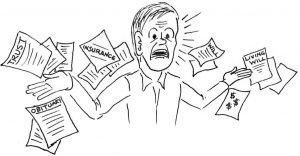
Probate
Probate in Ecuador is a complicated process, just like the US and processing of intestate (without an Ecuador Will) can take years. Recent changes in Ecuadorian legislation: now notaries can process probate processes, which can expedite matters. You may need apostilled birth, death and marriage documents for all concerned. This is NOT a do-it-yourself process – you will need legal assistance. Inheritance taxes must be paid before distribution.
It should be noted that the Ecuadorian legal system establishes the children as mandatory heirs. In their absence it’ll be the parents, the siblings, the nephews and the state in that order.

Attorneys
Ecuadorian legal documents are NOT a “do it yourself” proposition. In Ecuador an Attorney must create the documents that are then processed by a Notary and recorded in the Civil Registry. Documents can be changed, as long as a new document is created by an attorney and the recording process is repeated with a Notary. It is important to choose an Attorney that you can easily communicate with, who you like and who likes you.
Notaries
Notaries have a much more important role in Ecuador than in the US. They generally hold undergraduate degrees in civil law and graduate degrees in notarial law. Ordinarily no authority to appear in court on their client’s behalf; their role is limited to drafting, authenticating, and registering certain types of transactional or legal instruments, i.e. residential and commercial conveyancing and registration, contract drafting, company formation, successions and estate planning, and powers of attorney.
Notary duties and charges are available HERE
If you need to have a document notarized for the US, you can do it at the US Embassy. Info Here
U.S. Embassy or Consulate does not certify or apostille US issued documents or diplomas. State issued documents can only be apostille/certified by the Secretary of State of the issuing state. Source
Malacatos Notary: 0990632749 / 072673633
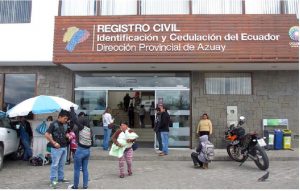
Civil Registry
All legal documents are registered in the Civil Registry by Notaries.
Documents registered in the Civil Registry are filed by date. You must know the approximate date a document was filed to be able to retrieve it.
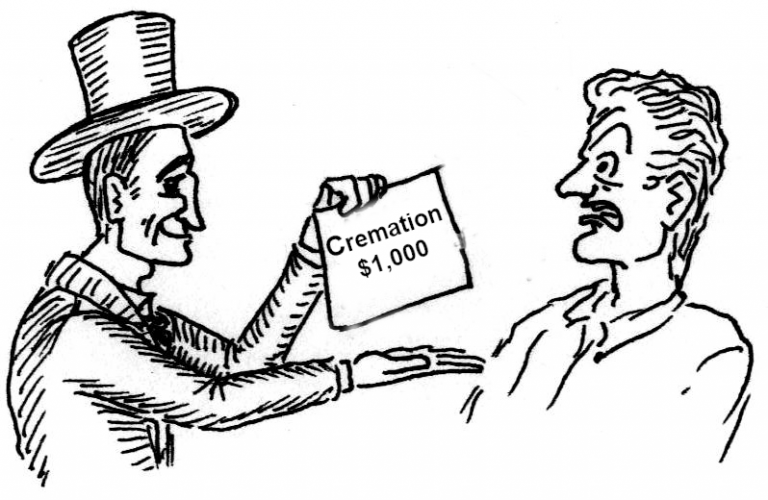
Disposition Payment
Someone will need to pay for the final disposition of your body, unless you don’t care where it ends up.
If there is no cash available and no one willing to take responsibility, your body will be placed in the morgue in Loja. If no one claims it within 30 days to 6 months, it will be placed in a mass grave in the Loja landfill.
It is your Right & Responsibility to arrange for payment.
Note: Some options will process payment requests for you (i.e., IESS), but for most, someone will have pay before services are rendered or cremains are released and do the paperwork. Many have time limits. Following are some options:

US Social Security Death Benefits
If death occurred outside the United States (U.S.), an official report of death by a U.S. Consul or other employee of the State Department; or a copy of the public record of death in the foreign country is needed. Source

US Veteran Death Benefits
Currently, VA burial allowances are flat-rate monetary benefits. They help cover eligible Veterans’ burial and funeral costs. Generally, they are paid at the maximum amount allowed by law. A 2014 VA regulation change helped simplify the program.
Eligible surviving spouses are now paid automatically. This happens upon notification of the Veteran’s death. There is no need to submit a claim.
However, VA may grant additional benefits after receiving a claim. These include plot or interment allowance and transportation allowance.
Apply for benefits: https://www.vba.va.gov/pubs/forms/VBA-21p-530-ARE.pdf
https://www.benefits.va.gov/BENEFITS/factsheets/burials/Burial.pdf
https://cremationinstitute.com/va-death-benefits-cremation/
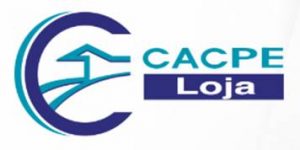
CACPE Member Benefits
Be a member of CACPE LOJA LTDA, and you will receive the benefits of the Mortuary Assistance, for the family of our partners and clients.
Amounts: $2000 – Members; $1000 – Savings Account; $2000 – Investors
Conditions
- Have a savings account, opened at least six months before the death
- Keep your savings account active to the moment of the death, with an average balance of at least $30.00, per month, the last three months
- Not be in arrears, for more than 60 days, in current credits granted by CACPE Loja, either as debtor or co-debtor
- Investors who not have a savings account or contribution certificates, will receive this benefit, if that investment has been issued at least three months before the death occurs
- The beneficiaries will do the process and claim for the amounts, within a period of 60 calendar days, counted from the date of death of the member or client Source
NOTE: If it is a joint account, only the Primary owner receives this benefit.

IESS Death Benefit
It is an aid or reimbursement in money that is given to the death of the retirement pensioner, montepío pensioner and the affiliate who had registered (6) monthly contributions at least, within the last twelve months (12 months) prior to his death.
Payment can be made directly between the Mortuary and IESS with no upfront payment with some mortuaries.
Following documents required:
a) Request for Funeral Assistance generated through the IESS page (www.iess.gob.ec)
b) Original invoice duly legalized in the name of the applicant, with the detail of each service provided, names and surnames and identification number of the causing death. In case of inconsistencies, the invoice and other documents will be returned.
c) Death certificate of the deceased deceased.
d) Identity card or identity certificate of the applicant (simplified file).
e) Certificate for the burial, cremation and / or burial of the deceased deceased.
f) Updated bank certificate of the applicant (issued by the financial institution).
In the cases, in which there is no widow / o, orphans or children of legal age, to settle the funeral service, the order of succession established in article 1023 of the Civil Code will be observed; For which, the heirs will justify their quality by means of an effective possession, these in turn, may authorize a third person to collect the benefit, through a special notarized power of attorney where they are granted the power to proceed with the relevant refund.
In the event that the applicant is not a relative of the deceased deceased, they must submit a notarized sworn statement stating that there is no relative of the deceased by faith and detail the respective funeral home that provided the funeral services. Source
Recent experience tells us that only the Primary person receives the death benefit – not a dependent.
REMEMBER: The action to claim the right to funeral assistance expires in one (1) year from the date of death of the member.
What expenses does it cover?
The expenses of reimbursable funerals correspond to the following concepts:
- Chest Mortuary
- Services velación
- Chariot
- Religious service
- Costs of burial or cremation
- Costs of leasing or buying niche, columbarium or cenizario
Dying with No Documents
What happens if you die in Ecuador, have no spouse, next-of-kin or legal representatives cannot be contacted?
Your body will be transported to the morgue in Loja. If no one claims it within 30 days to 6 months, your body will then be buried in a communal grave in the Loja landfill.
Your assets will be divided amongst your heirs according to the law. It should be noted that the Ecuadorian legal system establishes the children as mandatory heirs. In their absence it’ll be the parents, the siblings, the nephews and the state in that order. Source
Emergency Printable Wallet Card
- Give copies of your Emergency Information to the persons who will represent you.
- Carry a copy of the document with you when you travel in the country.
- Carry a document with a list of people to contact in case of the unforeseen.
- When not traveling, carry a laminated ID contact card with the name of your physician of preference, one family member, and two trusted friends who live nearby. Source

Medical Advocate / Translators
You simply cannot expect doctors, nurses and their staff to speak English. Identifying a Translator you are comfortable with is imperative, if you don’t speak Spanish.
Insurance Requirements
Ecuador residents, permanent or temporary, are required to have health insurance. They can choose either from IESS (public insurance) or a private company. What’s important (and required) is that a policy be established and that proof be provided to the Ministry of Foreign Affairs.
NOTE: Insurance policies from the US DO NOT qualify.
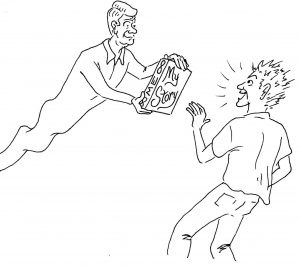
Legacy Questionnaire
Leave the gift of your life story. 93 Questions to stimulate your memory. Also questions for possible inclusion in your Celebration of Life.
During
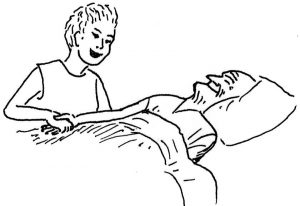
What is Hospice?
Hospice focuses on:
- A “team” orientation: professionals, volunteers, family
- Comfort and support for patients and their families
- Palliative Care – pain management, neither prolonging life nor hastening death
- The quality of the patient’s last days
- Emotional, social, and spiritual impact on the patient, family and friends
- Bereavement and counseling services to families before and after the patient’s death
Hospice is about providing comfort and dignity at the end of life.
There to help people live until they die.
Quality of life is the goal.

Palliative Care - Pain Management
Palliative care is specialized medical care for people living with a serious or terminal illness. This type of care is focused on providing relief from the symptoms and stress of the illness. The goal is to improve quality of life for both the patient and the family. Source
Hospice is understood as Palliative Care in Ecuador. Palliative Care has NO government monetary support or time constraint requirements (prediction of 6 months to death in US).
This is SELF PAY! Which is why you should not expect the same level of pain management you might be used to in the States.
For a physician to prescribe pain medication like morphine, they need a special certification. There are only a handful in Loja and Dra. Sonia Romero and Dr. Saber in Vilcabamba.

Hospice vs Palliative Care
Hospice
- Palliative care – pain management
- No curative treatment
- Comfort care
- Terminal diagnosis
Palliative Care
- Pain management – Comfort care
- Curative treatment can continue
- Can be combined with Hospice
- Terminal diagnosis not necessary

Hospice Services in Vilcabamba
- Patient Assessment
Email your completed Patient Assessment form and someone will get back to you shortly Admit@VilcaHospice.com - Help finding required medical assistance (paid and volunteer)
- Help locating required equipment & supplies
- Help finding required legal help and resources
- Emotional and Spiritual Support
If you would like to be a part of the Vilcabamba Hospice Team, please email Caryl@VilcaHospice.com
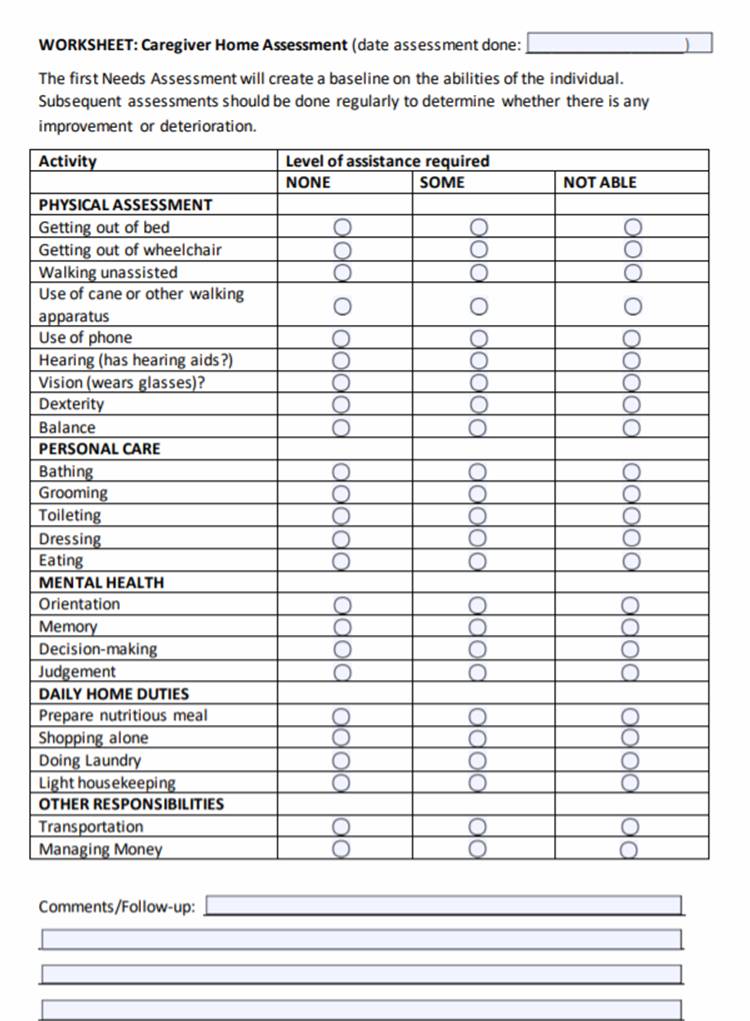
Patient Home Assessment
This is the first step in assessing how Vilcabamba Hospice can be of service to you and/or caregivers. The form below is available on line where it can be completed, then download and saved to your computer. Then email the completed form to: Admit@VilcaHospice.com We will get back to you shortly.

Physicians - Hospice & Palliative Care
Dr. Ashraf Saber
Speaks 4 languages – Including English
099 578 0034
dr_roufa@hotmail.com
Dr. Saber is an English-Speaking, Egyptian surgeon oncologist with PhD degree with several other specialties. He has done many surgeries to expats from Loja and Vilcabamba (hernias, cancer tumors, vascular, Gynaecological surgeries, Laparoscopy, orthopedic,….. etc.). He also administers alternative treatments for different indications : for examples Vitamin C and Hydrogen Peroxide IVs and Blood Plasma injections stem cells, mistletoe treatment for different indications…etc.
If you would like to make an appointment please call or send email:
Cell/Whatsapp: 098-612-0434
Email: kmatlag@gmail.com
Consultation Cost: $30
$30 for an Initial Assessment to establish “Attending Physician”, bring your cedula and passport
Virtual Zoom appointments are also available
Dra. Soñia Romero
Bi-lingual – excellent English
099 130 5728
soniaromero99@yahoo.com
$30 for an Initial Assessment to establish “Attending Physician”, bring your cedula and passport
Dr. Alex Xavier Espinosa Mora
alitosespinosa2001@hotmail.com
256 1183 or 096 820 0522
San Augustin Hospital, Loja

Palliative Care Facilities and Hospices
Vilcabamba:
Casa Asistencial Vilcabamba Assisted Living, Dementia & Hospice Care
Offers long and short term care services for senior citizens in a small, quiet facility in Vilcabamba. We have six private rooms, three with private baths, all comfortably appointed with large windows and natural light. We offer open-air dining in Vilcabamba’s warm climate, as well as beautiful gardens and a comfortable lounge area where residents can socialize.
Our facility is family-run by certified nurses, with on-site medical care provided by a physician. We prepare nutritious meals to suit each person’s taste and dietary needs. We offer physical and occupational therapy, as well as group activities.
We have a great deal of experience caring for Alzheimers and dementia patients in a manner that recognizes their humanity and respects their personal preferences. Our facility is equipped for dementia patients to navigate safely.
We offer complete care for every level of infirmity, including those who are wheelchair bound, bedridden, or incontinent and Hospice.
Our top priority is that our residents feel happy, comfortable, secure, and loved.
Please contact us to learn more our about services and facility: 098 688 4411 or
Malacotos:
Hogar De La Paz
- Catholic faith-based facility
- $500 per month, plus medications, plus move-in expenses
- No English
- Requires Medical Power of Attorney
- Typical Ecuadorian menu
- Body care and meals
- Minimalist room
- Limited availability
Contact: Hermanita Margarita
Phone: +593 07 267 3242
Loja:
Fundación Liga de Caridad
Loja League of Charity Foundation
Bernardo Valdivieso between August 10 and José Antonio Eguiguren
593 7 258 5191
- According to the Regulations of the League of Charity Foundation, the House of Terminally ill will receive, attend and provide quality assistance to the seriously ill, especially those who lack financial resources and therefore cannot remain in health centers traditional nor be attended by their relatives.
- People suffering from cancer, heart disease and others who do not belong to the cancer group are considered terminally ill, determine the patient’s disability.
- Any serious patient of any religion, race, social class with the right to equal treatment may be treated in the House.
Cuenca:
Hospice Fundacion al Servicio Del Enfermo de Cancer (FASEC)
Fernando de Aragon and Primero de Mayo
info@carepartnersintl.org
Cell: 097 919 7042
Phone #1: 07 409 6392
Phone #2: 07 4007 409 6391
Phone #3: 07 4099 6390
U.S.: 817-201-6356
Hospice is understood as Palliative Care in Ecuador. Palliative Care has no government monetary support or time constraint requirements. This care is self pay. Cuenca has the only palliative care facility in Ecuador which is FASEC.
FASEC is staffed by RNs and physicians trained in palliative/end of life care.
With 7 private rooms with private baths, this facility serves clients when the individual/family choose residential care rather than the in-home support care that FASEC also provides. Use of a translator on admission is helpful.
FASEC is no longer just for cancer patients and they also can be used as a short term post hospitalization recovery option.
The costs for in-patient care at FASEC include $40 for admission (one-time) and $40 daily for a private room or $20 for a non-private room. The patient pays for the cost of medications and necessary equipment.
The cost for one home visit by trained medical staff is $20; medications and any equipment that are required for the visit are paid for by the patient.
VIP Home Healthcare of Cuenca
Cuenca’s premier home healthcare provider.
Phone: 098 329 8243
Email: info@vipcuenca.com
http://www.vipcuenca.com
Victor Manuel Albornoz 4-97 y los Cedros.
VIP Home Healthcare of Cuenca: info@vipcuenca.com 098 329 8243
Here’s how it works: Our trained professional nurses and caregivers speak English and work closely with your doctor to provide care that continues uninterrupted from hospital to doctor to home. Many of our clients integrate care from alternative healthcare providers into their care as well. Whatever the combination of physical therapy, medication, diet, or basic homecare—our Clinical Supervisor will work with you and your Medical Providers to customize a single, all-inclusive plan that checks all the boxes. Your Caregiver or Nurse will use that plan as a road map to give you the best care possible right in your own home.
Our clients deal with a wide range of conditions from minor health issues and after surgery recovery, clear through to those who are dealing with dementia, cancer, serious heart conditions and hospice care. So, whether you need a few hours of in-home care each week, a doctor facilitator, or long-term 24-hour care, feel free to reach out to us. We would love to talk and see where we can be of assistance.
- VIP caregivers and nurses speak English, but can work with your providers in Spanish.
- As Cuenca’s Premier Home Healthcare Provider, we have the “horsepower” to provide a level of in-home care that will maximize health and minimize discomfort.
- Our Registered Nurses and trained caregivers combine a high degree of training, skill, compassion, and integrity. At VIP, client confidentiality is an absolute priority.
Check us out at our website and when the need arises, reach out to us. We look forward to meeting you!
Emergency Medical Assistance
From these statistics it is clear to see why Ecuador would spend more resources on the younger population, as compared to what we are used to back in the US.
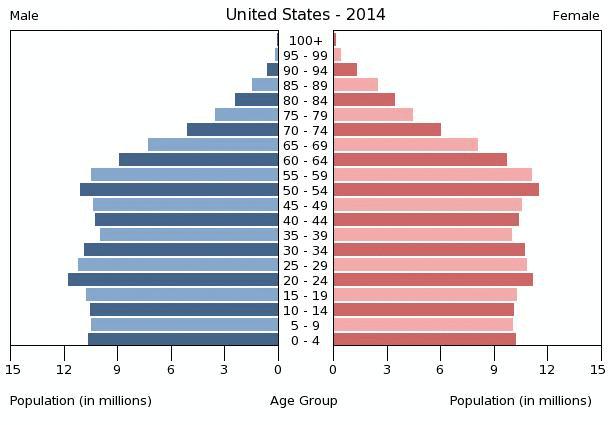
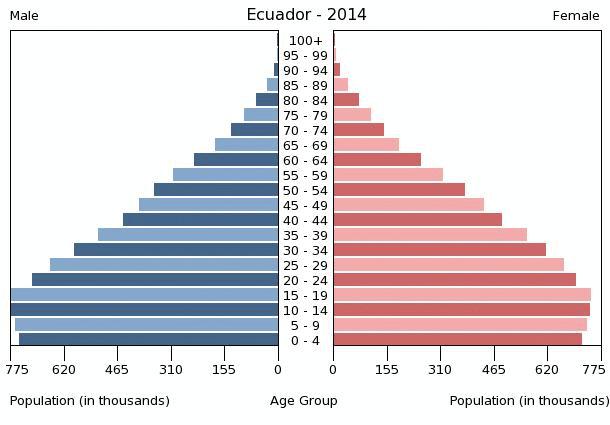
There simply is no need by the general, native population of Ecuador for their hospitals to be equipped, staffed and trained to handle the majority of acute, life-threatening illnesses that are rife in the aged, expat population. Ecuadorians do not typically suffer from the coronary heart disease, lung disease, cancer and Alzheimers/Dementia that expats do.
If you are here with medical challenges that could throw you into a life-threatening emergency, it would behoove you to make maximum effort to investigate, and prepare in advance, for your care from the onset of an episode through recovery; no matter where you live in the country. If you don’t, you may seriously compromise your life and well-being and with it the peace-of-mind and security of your loved one. Source
You might want to sign up for the Tia Poli: A service of the national police available to any resident in an emergency. Police will come to your place of residence within 3-5 minutes. To register, go to your local UPC station (ask your neighbors for the nearest location). An officer will record your name, address, cedula/passport, cellphone number and your email address into their database. Then the officer will enter the Tia Poli contact number into your cellphone. No GPS is required. Service works from any cellphone as well from a home landline.
If you anticipate needing Emergency Medical Assistance, you will want to be sure to have your Medical Information Form completed – in Spanish, along with a color copy of your cedula and passport, readily available and a relationship with a Medical Translator.
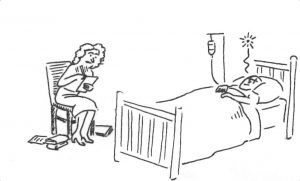
Hospital vs Clinic
“Hospital” in Ecuador typically refers to a free Public Health System hospital that belongs to the Healthy Ministry of Ecuador.
There are also IESS hospitals that belong to the Social Security system, and you have to be into the IESS system for at last 3 months in order to use those hospitals.
Both of these hospital options have a reputation for not being well equipped.
“Clinics” (Clínica), on the other hand, are usually private facilities, with doctors and specialist, with a reputation of being more expensive, but they are well equipped.
These distinctions do not always apply, however, like the UTPL Hospital in Loja, which belongs to the Technical University of Loja and San Agustín Clinical Hospital, which uses both words.
Hospitals in Ecuador are not as well equipped, in general, as they are in the US. Nor are they equipped to handle the many, complicated health issues expats bring with them, particularly heart and lung issues. Do not expect the same level of care as you typically receive in the US – especially without a very pro-active caregiver.
It is critical that you have someone available at all times while in an Ecuadorian hospital so they are free to go buy any supplies that might be required (this is a common issue apparently). Preferably someone who speaks Spanish. Do not expect the staff to speak English. Having access to a Medical Translator could save your life.
Also, do not expect pain medication without a very active caregiver/Power of Attorney and paying for it. Pain medication is not typically covered under insurance nor automatically given like in the US.
Many hospitals insist on the “advance” of a Credit (NOT Debit) card. Some will not even allow you to leave until the bill is paid in full. They post a guard at your door until it’s taken care of (this really does happen).
Having a credit card or plenty of cash available for medical emergencies is a valuable “insurance” policy.
Be sure to bring a colored copy of your passport and cedula, along with any relevant documents. If you are a couple, bring passport and cedula copies for both of you, so if one should pass, the other could authorize disposition without a lot of unnecessary running around. A spouse can authorize disposition with a Will or Affidavit or the spouses name identified as such on your cedulas.

Hospitals & Clinics
Vilcabamba
Hospital Vilcabamba – (Free)
Av. Eterna Juventud E682, Vilcabamba
Hours: Open 24 hours
Phone: (07) 264-0128
Loja
Hospital Isidro Ayora – (Free)
Ahorcados y Los Ahorcados
(07) 257-0540
Hospital Manual Ignacio Monteros Nivel II (IESS)
Calle Ibarra y Santo Domingo de los Colorados S/N
07-2563279, 07 2570214, 07 2572577
https://geosalud.msp.gob.ec/
Hospital Del Dia (IESS)
Avenida Manuel Agustín Aguirre and 10 de Agosto, Corner
(06) 236-3100
Santa Isabel Clinic
Loja – Av. Cuxibamba, 75-31 and Ibarra
0939965841
info@clinicasantaisabel.com.ec
Website: https://clinicasantaisabel.com.ec/
Hospital San José Clinic (Private)
18 de Noviembre
(07) 258-4072
Website
Medilab – Medihospital (Private)
Avenida Eugenio Espejo y Shuaras
099 910 0913
Hospital
Phone: (593) 072581404/3950600 ext 125
Fax: (593) 072581404
Email: info@medilab.com.ecn
Website
San Agustín Clinical Hospital (Private)
18 de Noviembre and Azuay
593-07-2570314
management@hospitalclinicasanagustin.com
Website
UTPL Hospital (Private)
Avenue 24 de Mayo
073952000
info@hospitalutpl.med.ec
Website
SOCIEDAD DE FIGHT AGAINST CANCER SOLCA NÚCLEO DE LOJA – SOLCA (Private)
2 614314
7-257-3752
info@solcaloja.med.ec

Labs & Pharmacies & Medical Supplies
Vilcabamba:
Farmacia Vilcabamba
Across from Hospital
Farmacia San Andrés Sucursal
Calle Sucre 12-17
vilcainfo.com
099 306 0598
and
Farmacia San Andrés
Bolivar y Diego Vaca de Vega
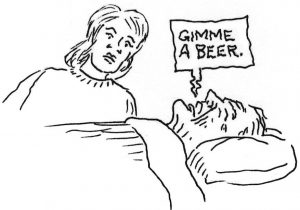
Setting the Stage
If at all possible, depending upon the location, caregivers should try to create a quiet, calm and peaceful atmosphere for the individual who is passing over. Such an environment may include soft music and lighting, pictures of loved ones or significant religious figures, flowers, plants, and drawings by children or grandchildren. If appropriate, incense, candles, and/or aromatherapy can be helpful. Perhaps creating some type of altar, should the dying person desire it, would be appropriate. At the very least, try to bring music into the environment; hearing is the last sense to expire. Be conscious of the noise in the room, i.e. television, radio, computers, chatter.
Ask the dying what they want, if possible. Give it to them, if possible.
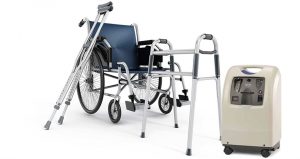
Medical Supplies & Equipment
Hospice medical equipment may include (but is not limited to):
- Bedside commodes
- Geriatric recliners (geri chairs)
- Hospital beds (Vilca Hospital has 3 beds they will loan out, if available)
- Orthopedia? $1600- $1800 to purchase
- Nebulizers
- Overbed tables
- Oxygen
- Shower chairs
- Wheelchairs
- Walker
- Positioning devices including cushions and wedges
Hospice medical supplies may include (but is not limited to):
- Bandages and other wound care supplies
- Gloves
- Personal care products including soap, shampoo, body lotion and barrier creams.
- Mouth swabs
- Under-pads; rubber, disposable or made of cloth
- Baby or adult wipes
- Tissues
- Adult briefs (diapers), ideally the tab type
- Thermometer, ideally the temporal or forehead type so the patient is not disturbed
(Most available at Cuxibama Farmacia – Loja)
- Two sets of twin sheets
- Extra pillow for comfort and positioning
- Baby monitor or small bell for the hospice patient to alert others when they need help
- Bendable straws, if they are allowed and patient does not have swallowing issues
- Protein drinks or protein powder to add to fruit smoothies
- Mild or bland food, including applesauce, oatmeal, cream of wheat, yogurt, pudding or bananas
- Distilled or bottled water for the oxygen concentrator humidifier bottle, if oxygen is used
- Night lights for the room and hallways, dimmer switch helpful
- Small wastebasket with trash liners for the bedside
- Handheld shower hose
- Nightgown or night shirt, ideally loose, comfortable, made of cotton and without pant legs
END-OF-LIFE CARE: MANAGING COMMON SYMPTOMS – RECOMMENDED PAIN MEDICATION
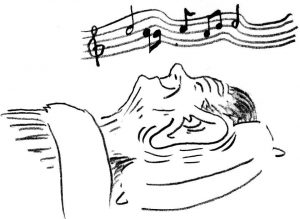
Holistic Ways to Help
Music therapy
Solfeggio Frequencies – 174 hz relieves pain, 852 & 963 hz help to connect to Spirit. Free videos on Youtube, many with beautiful visuals which can be very comforting. Source
You can also play their favorite music. Be conscious of the volume.
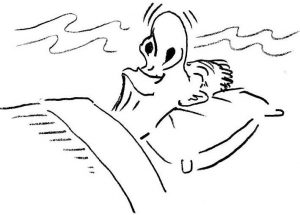
Aromatherapy
Diffusing a blend; mist sprays; gentle anointing with an oil blend; foot or hand massage; compresses. Using a gentle touch combined with beautiful aromas can provide a very special and meaningful experience for both the patient and those close to them.
- Cardamom – has the theme of being able to ease the passage of the dying to the next plane of existence.
- Frankincense – encourages acceptance and understanding
- Ginger – encourages acceptance where previously there was only an urge for struggle and fighting
- Grapefruit – fosters acceptance, inner peace, forgiveness and self-forgiveness
- Lemon – Can be helpful for those terrified of dying.
- Myrrh – has themes of aging, degeneration and dying
- Rosewood – fosters acceptance, inner peace, forgiveness and self-forgiveness
(more here)
If the person has a favorite essential oil that they love it can also be a good idea to incorporate that into your blend.
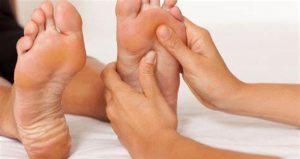
Acupuncture/Pressure
Here are some simple DIY directions
Professional Acupuncturists can also be helpful.
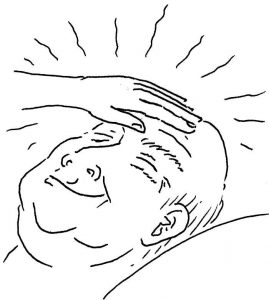
Touch/Energy Workers
At a time when more comfort and contact is needed, the dying are often ostracized by society and avoided by family and friends. The dying do not want others to be afraid to touch them or be in the same room with them. Imagine what it must feel like to be dying in a room alone. Often the closer one comes to death, the more distant others can become. Several factors contribute to this distancing. People do not want to face the reality that their loved one is dying. They are often uncomfortable around the dying because they do not know what to do or say and are afraid of doing the wrong thing. At times, it may be that the emotional intensity of the situation feels too overwhelming and there is a need to withdraw. Being with someone who is dying arouses our own fears of death. The intense pain that some experience while dying is frightening and heart-breaking to witness. There is also concern that the dying loved one is too fragile to touch or that touching will make the pain worse.
Of course, not everyone is comfortable with touch. For some, it is because of cultural norms. Some cultures touch more than others. The United States is considered a culture that does little touching when compared to high levels of touching in either France or Puerto Rico. Some people do not like to be touched as a result of having been physically or sexually abused.
It is always best to ask permission to touch and to be respectful of the person’s wishes. If they are unable to talk, look for signs such as grimacing or furrowing their brows that might indicate discomfort. If touch is welcomed, warm your hands together before touching. Always let your loved one know what you are going to do. Your touch does not have to be a firm or strong one, a light gentle touch will do. Gentle stroking movements of their arms or their hair can also be very soothing. If there can be no touching, simply sitting close by and just being there for your loved one can be reassuring for them. Calling the person by their name and making eye contact are also important things to do when with someone who is dying.
Touch provides many benefits for the dying as well as for the one doing the touching. Touch increases levels of the hormone oxytocin which in turn lowers stress hormone levels in infants and across the life span. For the elderly and dying, touch has been found to promote sleep, decrease blood pressure and heart rate. Practices such as massage and healing touch are now being utilized by doctors more often due to the positive impact they have on the sick and dying. Touch can also decrease isolation, anxiety, and pain. It can help to ground the person and decrease sensory deprivation. But perhaps, most importantly, touch is a powerful form of communication. It can say “I love you,” “I am here for you,” “I care about you,” and “I want to be with you in this time of need.”
Being with the dying can be a difficult, yet rewarding place to be. We feel helpless and want to be able to do something for them. Touching is the answer. It is a concrete way in which we can feel useful, support our loved one, and express our love for them. As we die, our vision can become dim and blurry. Just as with infants who can only see objects that are 8 to 15 inches away, the dying also have a limited range of vision. Once again touch becomes important. As we begin our lives and end our lives, it is touch that helps ease our transition. Source
10 Ways to Mindfully Touch Dying
Therapeutic Touch
Therapists place their hands on or near their patient’s body with the intention to help or heal. In doing so, therapists believe that they are consciously directing or modulating an individual’s energies by interacting with his or her energy field. The focus is on balancing the energies of the total person and stimulating the body’s own natural healing ability rather than on the treatment of specific physical diseases.
Therapeutic Touch is based on the following assumptions:
- The human being is an open energy system composed of layers of energy that are in constant interaction with self, others, and the environment.
- Illness is an imbalance in an individual’s energy field.
- Clearing or balancing the energy field promotes health.
- All humans have natural abilities to heal and enhance the healing in others. Source
Reiki
Reiki helps people and animals transition from their bodies with grace and ease. A healer’s work isn’t always about helping someone get better in the physical sense. Sometimes, a healer facilitates the death process. Returning to non-physical is the ultimate healing and part of the soul’s natural progression.
Reiki never interferes with an individual’s life or death choices. It just won’t work to wish someone dead while sending Reiki. Reiki never causes harm. You can send Reiki with the intention to support the dying process. And by no means does it mean you’ve failed when you are Reikiing someone with the intention that they recover and they die anyway. As always, it is important to release attachment to outcomes when giving Reiki. Source
Massage
According to the American Massage Therapy Association, a 2014 study focused on integrating massage therapy into palliative care found “statistically significant changes in pain, anxiety, relaxation and inner peace of patients, decreasing both pain intensity and anxiety while increasing the patients’ sense of relaxation and inner peace.” Palliative, or comfort, care is appropriate for people of any age at any stage of a serious illness. Source

Color Therapy
Using blue-based or “cool” colors (green, blue, indigo purple) in a dying person’s room can be very comforting and calming to the person. They are calming, cooling and soothing colors. Red, orange and yellow are stimulating, activating, motivating and warming colors and should be used minimally, unless requested by the dying person. Think blankets, sheets, lights and clothing. Source
Some “conscious dying” folks believe you can help the Spirit release from the body by spinning the dying person’s chakras counter-clockwise. Source
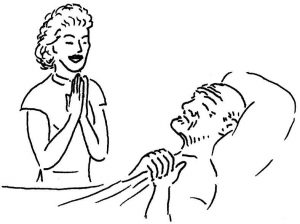
Spiritual/Emotional Counseling
The truth is, if you are dealing with end-of-life issues – whether you are facing death personally or are losing a loved one – each person has unique spiritual needs. And talking to someone such as a chaplain, minister or counselor can be a good way of exploring them. This is because spiritual needs aren’t exactly the same as religious needs. In fact, they’re much broader than that.
Dr Karen Groves from Merseyside, who works in palliative care, explains: “Whether or not they recognize it – and whether or not it is recognized by other people – everybody has a spiritual dimension. There is always something that gives them meaning in life, whatever that is. Therefore, at the end-of-life everyone will have spiritual needs of some sort – and we should be recognizing those.”
As such, you may find at this time that you have general questions about the meaning of life, issues about right and wrong or even specifically religious topics that you would like to discuss with someone like a chaplain. Even if you don’t consider yourself religious, you may still be grappling with some of these concerns. Source
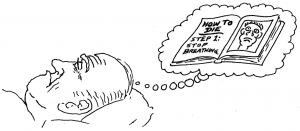
Dying Process
Although it’s difficult to predict with any precision when death will actually occur, there are some basic signs of impending departure. Knowing these signs can be helpful, both to the caregivers and the dying. The less about the process that remains unknown, the less likely it is to be polluted with fear by either the participant or a witness.
Because hearing is the last sense to go, feel free to continue talking to the dying person; be aware that he or she is probably aware of everything being said in the room (and perhaps, as has been reported, outside the room!).
It’s comforting to know that, in the case of “natural” (i. e. not violent or sudden) death, most people are, at the moment of their passing, peaceful and free from pain.
Although all patients do not show all of these signs, many of these signs will be seen in some patients. The reason for the tradition of “keeping a vigil” when someone is dying is that we really don’t know exactly when death will occur until it is obviously happening. If you wish to “be there” with your loved one when death occurs, keeping a vigil at the bedside is part of the process.
Signs of the preactive phase of dying:
- increased restlessness, confusion, agitation, inability to stay content in one position and insisting on changing positions frequently (exhausting family and caregivers)
- withdrawal from active participation in social activities
- increased periods of sleep, lethargy
- decreased intake of food and liquids
- beginning to show periods of pausing in the breathing (apnea) whether awake or sleeping
- patient reports seeing persons who had already died
- patient states that he or she is dying
- patient requests family visit to settle “unfinished business” and tie up “loose ends”
- inability to heal or recover from wounds or infections
- increased swelling (edema) of either the extremities or the entire body
Signs of the Active Phase of Dying - inability to arouse patient at all (coma) or, ability to only arouse patient with great effort but patient quickly returns to severely unresponsive state (semi-coma)
- severe agitation in patient, hallucinations, acting “crazy” and not in patient’s normal manner or personality
- much longer periods of pausing in the breathing (apnea)
- dramatic changes in the breathing pattern including apnea, but also including very rapid breathing or cyclic changes in the patterns of breathing (such as slow progressing to very fast and then slow again, or shallow progressing to very deep breathing while also changing rate of breathing to very fast and then slow)
- other very abnormal breathing patterns
- severely increased respiratory congestion or fluid buildup in lungs
- inability to swallow any fluids at all (not taking any food by mouth voluntarily as well)
- patient states that he or she is going to die
- patient breathing through wide open mouth continuously and no longer can speak even if awake
- urinary or bowel incontinence in a patient who was not incontinent before
- marked decrease in urine output and darkening color of urine or very abnormal colors (such as red or brown)
- blood pressure dropping dramatically from patient’s normalblood pressure range (more than a 20 or 30 point drop)
- systolic blood pressure below 70, diastolic blood pressure below 50
- patient’s extremities (such as hands, arms, feet and legs) feel very cold to touch
- patient complains that his or her legs/feet are numb and cannot be felt at all
- cyanosis, or a bluish or purple coloring to the patients arms and legs, especially the feet, knees, and hands)
- patient’s body is held in rigid unchanging position
- jaw drop; the patient’s jaw is no longer held straight and may drop to the side their head is lying towards
Excellent Article: End-of-Life Care: Managing Common Symptoms
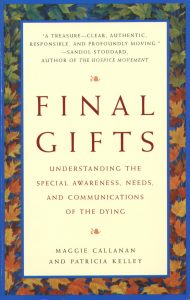
Nearing Death Awareness
The term Nearing Death Awareness(NDA) was coined by Maggie Callanan and Patricia Kelley in their book Final Gifts, published in 1992. It refers to a variety of occurrences and processes that they observed in the course of their work as hospice nurses. One conclusion to which their experience led them is that “we die according to how we lived”. They also learned that the dying often use metaphors that can help us understand what they’re experiencing, if we pay attention.
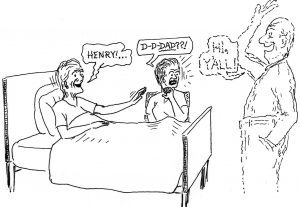
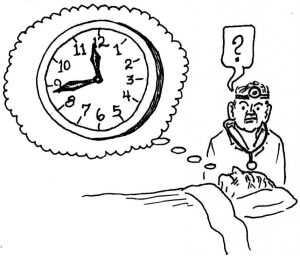
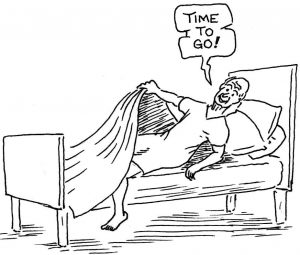
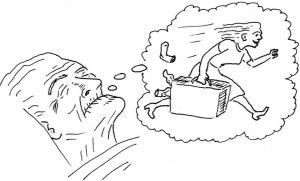
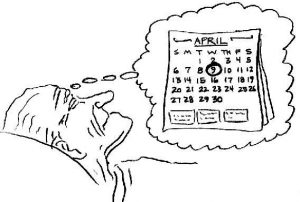
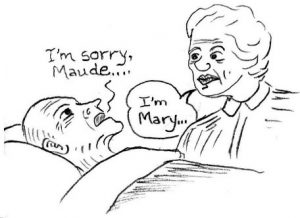

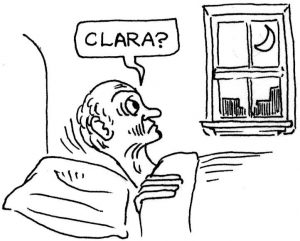
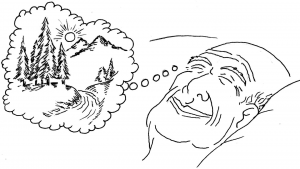
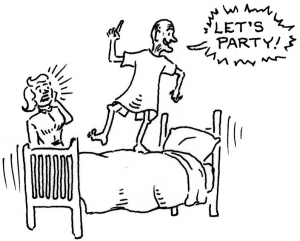

Near Death Experience
People who are terminally ill may have a Near-Death Experience (NDE) just before the final phase of their illness.
- The nearing death awareness experience can occur without the sudden shift in physical condition that usually precedes an NDE in an acute setting such as a heart attack, a near drowning, or a car accident.
- Meeting deceased relatives in nearing death awareness is almost universal, whereas in the acute setting this occurs only occasionally.
- The purpose of the NDAs in terminal illness seems to be to prepare a person for death; generally these NDAs are quite reassuring. The purpose of the NDE seems to be to teach the person how to live better.
- Like NDEs that occur in the acute situation, the terminally ill person may have a NDE when he or she is in a coma or an unresponsive state. However, some NDAs occur when the person is fully conscious. The person can stop conversing with a deceased relative and can immediately pay attention to what is happening in the room.
- Visitations differ from hallucinations, in that people experiencing hallucinations cannot suspend their hallucinatory reality momentarily to converse with people in their room.
- Living, absent relatives seem not to be perceived by the dying person. Sometimes a person may report being with someone who is believed by family or friends to be still alive, but who turns out to have died recently.
- If the dying are reassured that their experiences are perfectly normal for this stage of life, they can take great comfort from these encounters.
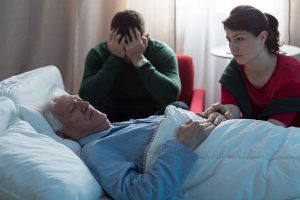
Shared Death Experiences
Shared Death Experiences: How They Transform Dying and Living with William Peters
Learn about shared death experiences and how they can lessen the fear of death and help with grief.

Guest William Peters is the founder of the Shared Crossing Project and is recognized by many as the world’s leading authority on the shared death experience (SDE). He discusses SDEs and what he has learned through his research, including how these experiences benefit those who have them. He is the author of the book At Heaven’s Door: What Shared Journeys to the Afterlife Teach About Dying Well and Living Better, which will be published by Simon & Schuster in early 2022 and we talk about it in this conversation. Learn more about William’s work at his website:
This episode includes:
- What is a shared death experience
- What happens during a shared death experience
- Who is likely to have an SDE
- What is the Spectrum of End-of-Life Experiences
- How do SDEs benefit those who have them
- Are SDEs becoming more accepted in our society
- The ongoing research being conducted by the Shared Crossing Project
- Advice for those who may have experienced an SDE without understanding it
- How to increase the likelihood of having a shared death experience
- How to submit your story to the Shared Crossing Project if you feel you have had an SDE

As people approach death, they often participate in several tasks
- They consciously review the life they have lived, often in great detail. Aspects that are of greatest interest to them involve relationships.
- Dying people look for themes in their lives, often for the first time. They want to identify what they have learned and what they have contributed. Sometimes they are surprised at what they find.
- Forgiveness emerges as a chief concern. Dying people often realize that forgiveness is an important aspect of completing unfinished business.
- They often do a “life review”, reflecting on their lives, telling and listening to stories.
- They begin the process of saying good-by to all aspects of this life. They start to let go of things, one at a time. Categories of letting go include activities, signs of independence, roles they have played, and finally relationships.
Communicating with the dying
- Be straightforward and honest, but let them lead the way.
- They may talk about going on a journey or going home as a metaphor for preparing to die.
- Be sensitive about how close they want you to sit to them, how much company they want, and how much talking is comfortable for them. People vary widely on this, and it is important to ask each one what is comfortable for him or her.
- People’s skin seems to become more sensitive as they approach death. Even gentle stroking may be irritating at such times. Merely holding their hand gently may be the most comfortable.
- Understand that as they approach death, they may withdraw as part of the process of saying good-by to this life and all that it has meant. They may be unable to focus or absorb what is going on around them or with family members, and they may not want to visit as much with loved ones as they did before. It is important not to have your feelings hurt, but to understand that this may be a necessary part of their preparation for death.
- It seems that the dying often have the ability to choose the actual moment of dying and so it is not uncommon for people to die when their loved ones are out of the room, even for the briefest of times, to spare them. It appears as if some people who are dying find it easier to let go when they are alone. Not understanding this, families often feel unnecessarily guilty under such circumstances.
- Terminally ill people may remain close to death for a long period of time if they are waiting for a significant relative or friend to come to the bedside, in order to complete unfinished business with them before going into spirit.
- Many dying people like to have someone with them, but they may not wish to (or be able to) interact very much. Your quiet presence may be all that they want.
- Allow them to talk about their NDEs and their NDAs if they have occurred, but know that not every dying person shares such experiences. There are no studies yet that explain why some people have them and others don’t.
- Please know that most dying people can be kept quite comfortable. If your loved one appears to be uncomfortable, please notify their health care provider.
- Know that this last stage of life often provides the most powerful interactions that loved ones will have in their entire lifetime.
- After the person has died, it is common for surviving loved ones to sense their presence.
- Some people may feel notified of the death by the person who has just died.
- The bereaved often feel the presence of their recently deceased loved ones who seem to be checking in on them. They may hear words, see their image, smell a familiar aroma such as a favorite shaving lotion, or merely sense their presence.
- Deceased loved ones may alert friends or family about some impending danger.
- Such contact with the deceased is quite usual. Excellent resource
More Excellent Resources
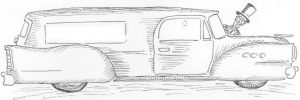
After
In case of death – What to do
What you will do first depends on where and how the body is discovered, if it is suspicious and if there is a physician that knows the deceased’s medical issues.
It is NOT necessary to call the police unless it is a suspicious or unexpected death.
Deceased is discovered at home, attending physician is known:
- Call the funeral home
- Call the attending physician to create the Informe Estadístico de Defunción (optional, Funeral Home will handle all the paperwork.)
- Have original passport and cedula available and/or a colored copy of both. You will need to give an original document to the funeral home. It will be returned.
- Get Cremation authorized signor to the body, if possible, with documents.
- Have at least $750 cash available when Mortuary arrives. If the deceased qualifies, IESS can be billed directly, with no upfront payment with some funeral homes.
Dies in a hospital:
- Call the funeral home
- Attending hospital physician will create the Informe Estadístico de Defunción
- Have original passport and cedula available and/or a colored copy of both. You will need to give an original document to the funeral home. It will be returned.
- Get Cremation authorized signor to the body, if possible, with documents.
- Payment of the hospital bill will probably need to take place before the body is released.
- Have at least $800 cash available when Mortuary arrives. If the deceased qualifies, IESS can be billed directly, with no upfront payment with some funeral homes. Conditions apply.
Suspicious or unattended death:
- Call 911 or “5” for the police – Do NOT touch anything
- Call the attending physician, if known
- Police will determine if an autopsy is required
- Police will transport the body, if autopsy required (probably a fee)
- If an autopsy is NOT required – Call the funeral home
It is suggested that the caller be a Spanish speaker or be at home and signed up for “5”, which will automatically tell the police where to come.
If possible, have the Cremation authorized signor present when the body is picked up, along with the document authorizing disposition, so the Authorization document can be signed right then. Spouses can authorize disposition without any legal documents other than the spouse’s name on each other’s cedula. The cedula of the cremation authorization person(s) must be available.
Have the Important Information Packet handy, a color copy of the deceased’s Passport, cedula and Identification Card or at least their passport and cedula numbers. Have their original passport and cedula available, if possible, they will want an original of either. It will be returned.
Unless it is a crime scene, before you call anyone: Put away anything that is valuable in a secure out of sight location so it cannot be confiscated (computers, phones, wallets, jewelry) (may not be returned).
You have 48 hours to report a death without incurring additional fees ($3-5). A body must be buried after 72 hours
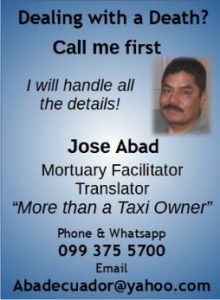
Mortuary Facilitator Option
Call Jose Abad FIRST and he will handle all the details
Phone & Whatsapp: 099 375 5700
Email: Abadecuador@yahoo.com
$780 – Cremation, paperwork and return of ashes to Vilcabamba.
($730 for the cremation and $50 for Facilitator) (prices subject to change)
These must be present when the Facilitator arrives:
- Original Passport or Cedula
- $730 Cash (If the deceased has had IESS for at least one year and paid consistently for the last 6 months, the funeral home can bill IESS directly with no money required, other than the $50 for the Mortuary Facilitator.)
- Cremation Authorization Document copy
- Cremation Authorization person present to sign documents
- Name and contact information of the Attending Physician who is available to create the Informe estadístico de Defunción(statistical death report created on line by the attending physician)
Additional fees:
$100-$300 – Mortuary to come to the place of death, initiate paperwork, prepare the body for viewing and return to pick up the body. Will depend on cause and place of death.
$150 – If Cremation Authorization document or person is NOT present – Jose Abad can take responsibility and obtain the necessary Document from a Notary and sign the Authorization.
$100 – If no Attending Physician is available to create the Informe estadístico de Defunción.
$50 – If full Cremation fee is not available initially, 50% is acceptable, with full payment required to receive ashes. Requires a trip to Loja.
$120 – Ambulance from Loja to move a patient within Vilcabamba
20% of total + Trip to Loja (Approximately) – If credit card is used.
$200-$500 – Send ashes to the United States.
$8,000-$10,000 – Send body to United States.
Regular taxi fares and time applies for additional trips related to the death.
Jose will send a picture of the Cedula or Passport to the mortuary so they can bring the required, prepared document for signature.
(prices subject to change)
Detailed Check List
Specifically for an expected death of a Foreigner living in Vilcabamba,
utilizing Jose Abad and Divino Descanso Mortuary
DISCLAIMER: Laws, fees and procedures change frequently. If the death is unexpected or violent the police will need to be called. Jose can help with this. I have done my best to represent the information as accurately as possible as of August, 2022. Mortuaries apparently have different requirements, procedures and rules – These are specific to Divino Descanso.
If possible, it is a good idea to notify Jose in advance of the actual death
- Call Jose Abad +593 99 375 5700 (Phone or Whatsapp).
- Give him the person’s name, location and time you wish pickup.
- Send Jose a picture of the front and back of the deceased’s Cedula or Passport.
- Send Jose a picture of the front and back of the Cremation Authorization person’s Cedula or Passport.
- He will notify Divino and arrange for pickup.
Locate deceased’s ORIGINAL cedula and/or passport
- Take clear photos of the front and back.
- Send to Jose.
- Divino will probably take the originals and return with the cremains.
Someone will have to sign to authorize the cremation. This person(s) will have to be available at the time of pickup or delivery of cremains to sign documents.
- Spouse can do it without any documents, if the deceased is named on the spouse’s cedula. If not, marriage license might be required.
- If no spouse –
1. Legal document required naming a person to authorize or
2. Two people will have to sign who can swear the person stated they wished to be cremated. - Take clear photos of the Authorized Person(s)’ cedula(s) or passport(s) and send to Jose.
Statistical death report created on line by the attending physician, used to create the Death Certificate.
Mortuary will probably not pick up the body until this is created.
- Dr. Saber, our Hospice Physician, or Dra. Sonia Romero can do this for $30-40, if they are aware of the deceased’s medical condition.
- Hospital Physician will do it, if in hospital.
- If no Primary Physician, Divino has someone that can help for about $150.
- Notify Primary Physician of death immediately.
- Send copies of the deceased’s cedula or passport to the physician.
- Divino will obtain the Informe on line.
You legally have 24 hours to report the death.
- It is best to call Jose immediately, so he can contact Divino and get things going and possibly avoid law enforcement getting involved and a possible autopsy (unless it is an unexpected or violent death, in which case you will need to call the police too).
- You can ask for a pickup for any time within 24 hours.
- The deceased can be dressed in anything you wish.
- Be sure to tell Divino if the deceased has a pacemaker or any other metal in their body.
- In order to save time, energy and money, it is best to have everything listed here done or available when the pick up occurs.
Someone will have to sign to take financial responsibility for the final hospital bill.
- The hospital bill will have to be paid before the body is released to the Mortuary.
- The patient, if they are able, or a Medical Power of Attorney or friend will be asked to sign on admission, usually, to take responsibility for final payment of the hospital bill.
- Be careful what you sign. Demand that someone read it to you in English.
- If the patient dies, obviously, their credit card cannot be used after their death unless the MPOA is also the Executor of the deceased’s estate.
It is simplest and cheapest to have all the cash available at pickup.
- Option: At least half of the fee will be expected on pickup or before cremation will take place and balance due when cremains delivered.
- If cash is not available, see above for credit card fee.
- If full payment is not available on pickup, all of these options could require a trip(s) to Loja to Divino’s office.
- If the deceased has IESS, it is possible, at this time, for Divino to bill IESS directly with no payment at pick up (Except $50 for Jose and $20 for Divino to register the Death Certificate), as long they have been registered for at least one year and are current in their payments. This, however, could change due to the state of Ecuador’s IESS finances.)
Cremains will be returned to Vilcabamba in a few days.
- Divino will return the cremains to the Authorized Cremation person in Vilcabamba within a day or so, which will be arranged by Jose and he will be there to direct them to the responsible person, to assist and translate.
- Depending on whether everything was available at the time of pickup, paperwork will be signed and any final payment made.
- Cremains will not be returned until full payment is received.
- Cremains are not toxic in any way and can be disposed of as you wish.
The Death Certificate must be registered with the Civil Registry in Loja.
If you do not speak Spanish, especially if you are grieving, this can be a difficult task.
- Hopefully you requested and paid Divino $20 to register the Death Certificate.
- If not, your responsible person will need to take all the paperwork Divino gives them and go do it themselves, which can be a challenge if they do not speak Spanish.
- Well worth the money!
- You can pay Jose $25 to pick up the Death Certificate in a week or so at Divino, if you paid Divino to process it, or you can pick it up yourself. Jose can arrange this.
No where in the Ecuadorian system are deaths of foreigners automatically reported to their home country.
- After your responsible person has received your Death Certificate, they will need to contact the appropriate Embassy and send them a copy.
- The Embassy will need a statement that Divino can provide stating they did the cremation (invoice is NOT sufficient).
- Divino provides this document at no cost, but you need to ask. Ask at body pickup or someone will need to pick it up from Divino.
- There will be a form to complete on the appropriate Embassy website. Do a search for “Report Death of a __________ citizen out of the country” to find the appropriate Embassy and instructions.
- The Embassy will translate the Death Certificate to the appropriate language and apostille to be used in the home country, report the death and send you copies.
- Contact Yadira Alarcon, if you need help.
US pensioner’s are NOT due a payment the last month of their lives.
- Even if the pensioner dies on the last day of the month, they are not due a payment for that month.
- If the payment has already been deposited into your account (or check sent), it will IMMEDIATELY be withdrawn from the account when they are notified of the death, possibly creating an overdraft.
- They will pursue your spouse or estate, if insufficient funds exist.
- It is a Federal crime to obtain the funds of a deceased pensioner.
- US Social Security should be notified of your death by the Ecuadorian US Embassy when you file the paperwork with them.
Might be due a $255 Death Benefit
- If the deceased receives a US Social Security pension, the responsible person will need to contact Social Security to determine what survivor’s benefits they might be eligible for.
- It is possible a $250 Death Benefit might be due, as well as monthly pension changes for the spouse.
$1,000 Mortuary Benefit
- If the deceased has an account at CACPE and they are the primary account holder, the spouse or blood or adopted children can claim the $1,000 Mortuary Benefit.
- You can also state you want your Executor to claim it in your Will.
- If your next of kin is not in Ecuador, the process to get this benefit is complicated and expensive and pretty much makes it not worth the bother.
- You have 60 days to claim this benefit.
Some changes might be required
- Contact a Visa Facilitator to determine if anything needs to be done.
- Laws change frequently.

Responsibilities of your Personal Representative/Executor
You will need to name an Executor or someone to handle your end-of-life business. This is a big responsibility. The following are some of the duties they will be expected to handle. Choose wisely and be sure you discuss it with your choice.
Note: Powers of Attorney expire upon death. Your end-of-life business must be handled by a spouse, blood family or someone named in your Will or an Affidavit.
When a death occurs
- Legal pronouncement of death:
- Done by attending physician
- If there is no attending physician, an autopsy will be done as required by Ecuadorian law.
- Transport of body:
- It is highly recommended that you select and contact a funeral home to assist you. To begin, the home will require a Informe estadístico de Defunción
- Upon receipt of the Declaracion (Informe estadístico de Defunción) the funeral home is allowed to proceed and guide you or family through necessary paperwork required for cremation, burial in Ecuador or transport of body out of country. The funeral home will also assist in all other matters related to the process.
- Notify immediate family members and friends
- Arrange care for dependents, if any
- Arrange care for pets, if any
- Begin to keep a record of all expenses (including receipts) paid out including hospital bills, funeral home deposit, travel.
Several days after death occurs
- Gather together all deceased’s outstanding bills and list all monthly expenses (rent, utilities, cellphone)
- Locate legal documents (wills, insurance policies, bank statements, investments)
- It is recommended that the Executor, family or person taking charge of estate should secure the services of an estate lawyer.
Up to ten (10) days after death occurs
- Death Certificate: get multiple copies that will be required for financial institutions, government agencies, insurers (at least 5 suggested)
- Arrange for decedent’s home to be secured.
- Cancel or rearrange home deliveries.
- Dispose of perishable items (food, plants, etc)
- Access to bank accounts (Ecuador and out of country)
- Notify Life insurance company (if applicable) and inquire about disbursement of benefits
- Prepare inventory of Debits and Credits
- Notify appropriate government agencies from which deceased had been receiving benefits including pensions and veteran services. Get claim forms to stop monthly benefits. Ask about burial allowances and survivor benefits, if applicable.
- DO NOT PAY decedent’s debts until attorney has discussed with family or executor.
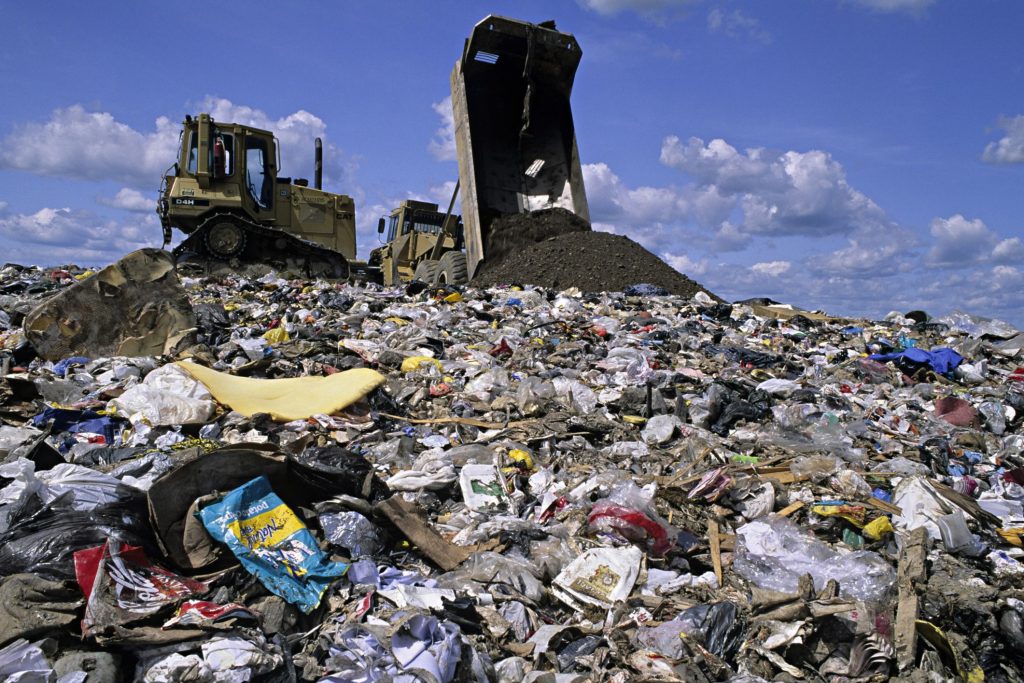
Dying with no Pre-Planning or Money
Your body will be transported to the morgue in Loja. If no one claims it within 30 days to 6 months, your body will be buried in a communal grave in the Loja landfill or donated to the Loja medical school.
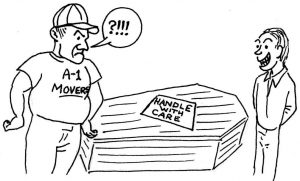
Body Transportation
Funeral Home
Depending on the mortuary, they will usually handle transportation
Taxis
Taxi drivers can transport the body, if necessary. Not all are willing – ask. Jose Abad will do it.
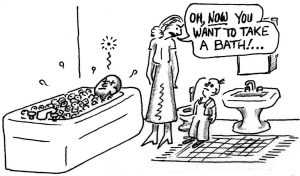
Caring for Your Own Dead
Caring for Your Own Dead is possible in Ecuador, however, it requires pre-planning and dedication to the concept and it definitely complicates the process.
Caring for Your Own Dead means taking some or all of the responsibility of caring for our loved ones at death. This includes your emotional and physical involvement. It can mean family and friends joining in an around-the-clock vigil of love and attention for our departed in the days after death.
For many, it means keeping our departed ones at home for up to a three day transition period if they have died at home, or bringing them home for this time if they have died elsewhere. It means handling some or all of the care of the body ourselves. This can also be done in conjunction with a funeral director. This can include washing, dressing, and transportation of our loved ones. Caring for our own means not using unnecessary invasive procedures on the bodies of our loved ones and creating an atmosphere conducive to the sacredness of their crossing.
Historically, the family had this responsibility. Caring for our dead was central to living and the various religions and nationalities that comprise our country had rich traditions for weaving death into the fabric of family and community life. This experience has been lost as we have opted for convenience, yet, when death occurs, we are the ones who bear the loss and are left with an experience that can be dissatisfying and hollow.
It is not for everyone, but is an option.
Washing and dressing the body is an act of intimacy and sign of respect. Those who were most involved in the person’s physical care may feel the most comfortable in doing this. Continued respect for the person’s modesty is essential.
Regardless of whether the person died at home or in hospital, hospice or nursing home, washing and positioning the body is best done where death occurs before stiffening of the body (rigor mortis) sets in. Rigor mortis happens within two to seven hours after death. Regardless of the location of care, you may need four to six people to help in gently moving and turning the body.
At home, you can wash the body in a regular bed. However, a hospital bed or narrow table will make the task easier. Since the body may release fluids or waste after death, place absorbent pads or towels under it. It is important to take precautions to protect yourself from contact with the person’s blood and body fluids. While you are moving, repositioning and washing the body, wear disposable gloves and wash your hands thoroughly after care.
Washing the person’s body after death is much like giving the person a bath during his or her illness.
Here are complete instructions on how to prepare a body
What happens to the body after death
Crossings: Caring for Our Own at Death, A Home Funeral and Green Burial Resource Center
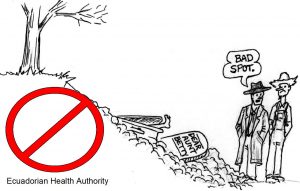
Do It Yourself Burial
It is NOT legal to bury a body on your own property in Ecuador. (This is the only legal question I asked that was consistently answered the same.) A funeral home MUST be involved.
The penalty for doing so, I’m told, could be four times the “basic salary” ($425 a month in 2022), plus cost of exhuming, moving and placing the body and there could be additional ramifications to the landowner.
It is NOT legal to cremate on your own land either.
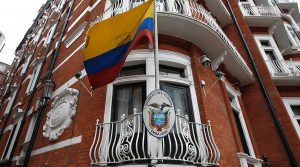
US Embassy & Consulate Assistance
Death is a time of crisis for one’s family and friends no matter where it takes place. If death occurs overseas the experience can be even more traumatic, especially if the procedures involved are not clearly understood.
Consular officers can:
- Help identify, locate, and notify next-of-kin
- Issue Consular Reports of Death Abroad, based on the local death certificate
- Take possession of the personal effects of a deceased U.S. citizen
- Provide guidance on local burials or cremation
- Issue consular mortuary certificates for the return of remains to the United States
U.S. Consulate in Guayaquil
From Monday through Friday
Between 1:00 p.m. and 3:00 p.m. – Except on local and U.S. Holidays.
+593-2-398-5000
For detailed information about burial and funeral costs in Ecuador or the cost of repatriating a loved one’s remains to the United States, please read the Disposition of Remains Report located on the right side of this webpage. This document also explains the local laws and facilities that impact these cases. It is important to remember that the U.S. Government is not able to assist financially with local burials or the repatriation of remains of U.S. citizens.
If a family member will not be coming to Ecuador, please note that the family may need to get a Power of Attorney giving permission to the funeral home or your representative in Ecuador to handle these affairs. The Power of Attorney, in order to be valid in Ecuador, needs to be done at an Ecuadorian Embassy/Consulate or, if is done at a U.S. notary, needs to have an Apostille and needs to be translated into Spanish. Source
Charlie Wise is the Consulate Representative in Vilcabamba
098 509 5121
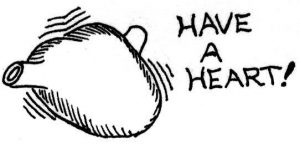
Organ Donation
Organ Donation for Residents of Ecuador March 31, 2011 The U.S. Embassy in Quito advises U.S. citizens living or traveling in Ecuador that the Ecuadorian government has recently passed a law concerning organ donation. The new law, “Ley Organica de Donación y Trasplantes de Organos y Tejidos”, was passed by the National Assembly in January and went into effect on March 4, 2011. The law provides the option for all Ecuadorian citizens or legal residents to opt into the national organ donation program upon turning 18 years old. The competent authority to record whether a person chooses to be or not to be a donor is the Civil Registry.
During application for the new Ecuadorian “cedula” identity document, this question will be asked and recorded by the Civil Registry. Ecuadorians and residents may also register to be donors on-line with the Organismo Nacional de Trasplantes de Organos y Tejidos (ONTOT) at this website.
If an individual wishes to be included in the organ donation program, participation in the program will be included on his or her cedula. Parents may decide if their children will be organ donors. If an individual chooses not to be included in the program, he or she may simply reply in the negative to the question on the cedula application. According to the law, the choice not to be included in the program will not result in any “discrimination.” The law is meant to prevent the illegal trafficking in organs. Source
Note: I have been told that organ donation is done in a hospital and organs are transferred to a live person. Mandatory organ donation is more likely to happen in a hospital situation or due to an accident or unexpected death in a major city. If a death occurs in Vilcabamba, due to the transportation logistics and time factor, it is unlikely that organ donation would be feasible.
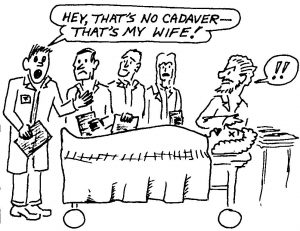
Body Medical Donation
Unclaimed bodies left the Loja morgue may be donated to the Loja Medical School.
You can also indicate your preference in your Will or other end of life documents.
Autopsy
Autopsy is required for an unattended or “suspicious” death – It can be billed to your estate.
If an autopsy is required, the Fiscalia will pick up the body and do a free autopsy. What is NOT free are any blood or tissue samples that must be sent to Guayaquil. Then there is a charge.
No attending physician? Then an autopsy will be required.
Under Ecuadorean law, an autopsy is obligatory if a person dies in sudden or violent circumstances (this is not to be confused with the rules around cremation – in some cases an autopsy will be performed, but no further investigation is required after that, so a cremation CAN still be performed in these circumstances). The judicial police pathologists are responsible for carrying out autopsies. If a person dies in hospital, or from an illness lasting more than 24 hours, an autopsy is not obligatory. Source
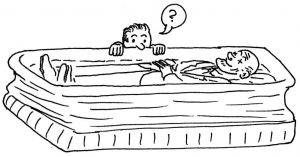
3 Day Wait/Wake
Some people believe that a body should be left undisturbed/moved/disposed of for at least three to eight hours and some, three days after the last breath, to allow the spirit time to detach from the physical form. Given the realities of modern life and death, of course, such “indulgences” are not always possible.
Old mystical and spiritual texts warn that three days should elapse between expiration and the performance upon the body of any disposal procedures (cremation, embalming, what have you). They claim that the departing soul (the “regulating force” that directs mind) needs time to entirely extract its history from all of the body, a process that is somehow energized by the early stages of decay of the corpse. During these three days, it’s even possible for the departing soul to “change its mind” about leaving; in such a case, the body must of course still be intact and available for “rehabitation”.
Once three days have passed, though, it seems not to matter what becomes of the corpse, which is by that time truly an “empty shell”. If the “three-day rule” cannot be respected, then natural, at-home burials are preferable to cremation or any other method that would violate the physical integrity of the corpse. The underlying belief here is that premature destruction of the body (purposely or not) means for the soul a premature return to another lifetime, with inadequate preparation. Not good news, one would think, for those who die suddenly by violence or catastrophe!
Perhaps this concept is rooted in the old (and all-too-often justified!) fear of being buried alive. Even now, we occasionally hear tales of people who are pronounced dead, only to awaken, several hours or days later, in the morgue. And of course, there’s the fairly well known story about the rabbi who rose from the dead after a three-day entombment. That biblical tale is repeated in the “myths” of many cultures around the world, many of which predate Christianity by a considerable chunk of centuries.
There could be additional funeral home costs involved in holding a body for 72 hours. If this is your wish, be sure to indicate it in your Will or Affidavit.

Ecuadorian Dying & Death Laws
Ecuadorian Dying & Death Customs
Specific facts relating to embalming, cremation, caskets, exportation, documentation requirements, preparation, shipment, and exhumation
During the embalming process, internal organs will be disposed of, in accordance with article 56 of Decision No. 3523 of the Ministry of Public Health of Ecuador, dated July 3, 2013. See relevant paragraphs below for additional important information.
Someone has to be authorized to take the body to the funeral home and sign the permissions for the burial, i.e., someone has to take responsibility.
It will be helpful if you have a doctor involved with your end of life care because he/she can attest to the cause of death. Source
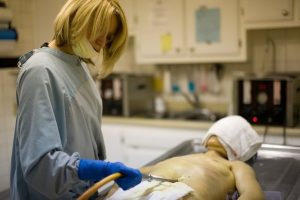
Embalming
Embalming is not typically required in Ecuador and not as common as in the US.
When a body is not embalmed: Burial must be made within 72 hours of death, according to local law. If putrefaction is present, burial must be immediate.
Embalming may be performed by the Forensic Institute and private professionals employed by registered funeral homes. Accreditation for embalming must be authorized by the Jefatura Provincial de Salud (Provincial Public Health Director). The average cost to embalming in Ecuador is approximately $500. It is common practice not to embalm, but merely to inject the cadaver with formaldehyde (unless the body is going to be shipped outside the country).
Ecuadorian law stipulates that remains that are to be shipped out of Ecuador must be embalmed. During the embalming process, internal organs will be disposed of, in accordance with article 56 of Decision No. 3523 of the Ministry of Public Health of Ecuador, dated July 3, 2013. Source
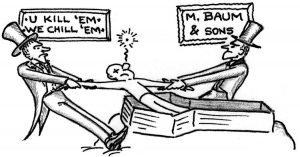
Cremation & Burial Authorization
- Someone must sign to authorize cremation or burial
- Being there when body is picked up is easiest
- Spouse can authorize without any documents from the deceased as to wishes
- If spouse’s Cedula says “Casado” or “Casada” (married) – easiest
- No spouse – Affidavit authorizing a friend(s) is needed
(Number of Authorized Agents depends on Funeral Home)
Or Power Of Attorney from relative overseas. Cedula must be available. - Someone will have to take responsibility for payment
- Funeral Home will handle paperwork – call them first
The Ecuadorian culture, being predominantly Catholic, does not have a preference for cremation.
There can also be roadblocks to cremation if out-of-wedlock children or out-of-country children claim inheritance, especially if you own property in Ecuador. According to Ecuador law and tradition, all children who can prove paternity are entitled to a part of your estate, another reason the government prefers burial. Cadavers can be exhumed and DNA tested.
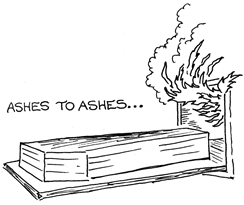
Cremation
- Cremation in Ecuador is the simplest disposition method for expats.
- It requires the approval of someone. A spouse can authorize a cremation (see above) or an Authorized Agent in an Affidavit.
- Approximate cost $780.
- Funeral Home will handle all the paperwork. Call them first.
- Unless the death is suspicious in some way, it is NOT necessary to call or involve the police
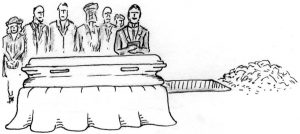
Burial
They tend to move dead bodies around in Ecuador much more often than in the US. Know that if your choice is burial, it will be more complicated, your body will probably be moved at some point and someone will probably need to continue to pay for your grave site.
Burial in Ecuador is easier than shipping a casket home and less expensive, with one exception. Many cemeteries offer purchase of plots for a set period of time, with the understanding that remains will be removed and buried elsewhere at the end of that period (3-7 years). Arrangements must be made, in advance, for this relocation of remains. (Often an annual fee is charged, approximately $50)
Your body can NOT be buried on your own or someone else’s land.
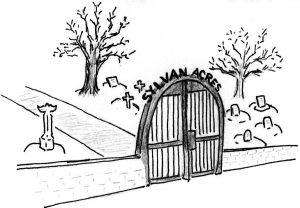
Cemeteries
Many cemeteries offer purchase of plots for a set period of time, with the understanding that remains will be removed and buried elsewhere at the end of that period (3-7 years). Arrangements must be made, in advance, for this relocation of remains. (Often an annual fee is charged, approximately $50)
Burial in Vilca is free for three years. Then the body gets moved to a mass grave or others are buried on top, unless a $50 fee is paid annually. Contact Municipio Vilcabamba for Vilcabamba Cemetery use. 099 922 8039
San Pedro: $150 upfront, but good forever.
You CANNOT bury on your own or someone else’s land, even with their permission.
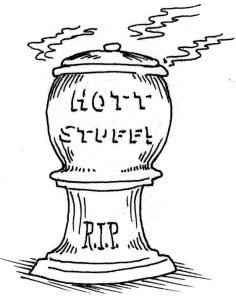
Sending Body or Cremains to US
Sending a body back to the States is possible, however, it is expensive, time-consuming and complicated. The Embassy can often help, but you need a very pro-active Authorized Agent.
If you are American, and your wish is to have your ashes or remains sent home, there is another step to complete after all Ecuadorian death-related documents are obtained. If your body has been cremated, the person who performed the cremation must go to the American Embassy in Quito or to the U.S. Consulate in Guayaquil and sign an affidavit that he or she cremated you. Your estate or family must pay for travel and other expenses, which includes paying the person’s wages for the day, lodging (usually not necessary) and meals. (See U.S. Government 7 FAM 258 DOCUMENTS TO ACCOMPANY REMAINS; these regulations were updated January 18, 2013). If your body is cremated in Cuenca, Loja or Ibarra, understand the expense and effort needed to fulfill this requirement.
As for shipment of remains in a casket, a U.S. consular officer will work with you to ensure that the Ecuadorian funeral director and American funeral director are in communication to guarantee that preparation of remains complies with local, U.S. Department of State, and federal requirements. Also note: DHL, Federal Express, and embassy diplomatic pouches cannot be used to ship cremated remains out of the country.
EXPORTATION OF HUMAN REMAINS Local requirements (Death by non-contagious disease only)
- a) Official death certificate obtained from the Ecuadorian Civil Registry offices.
- b) Next of Kin’s consent for exportation of remains (The power of attorney for exportation of human remains should be signed, notarized, apostilled, and then sent to the next of kin’s agent in Ecuador, normally a funeral home. Although obtaining the apostille can be a time-consuming administrative task, Ecuadorian authorities typically require this formality in order for the remains to be released to a representative. If next of kin is present in Ecuador, this document can be obtained from the U.S. Embassy).
- c) Embalming certificate.
- d) Inspection certificate from health authorities covering embalming, packing and preparation for shipment.
- e) Permit to transport and export body issued by health authorities.
- f) Customs inspection of shipment and seal on box attesting that the box contains nothing but the remains of the deceased.
EXPORTATION OF HUMAN ASHES: (a), (b), (d), and (e) as above, plus cremation certificate. The U.S. Embassy recommends that the next of kin (or his/her agent) contract with a commercial courier service for the international shipment of cremated remains.
Cargo space availability and fares are independently established by the different carriers. When arranging shipment of remains to the United States, it is of key value to ensure there is space available to fit a coffin in a particular flight. Urns containing ashes are rather easily accommodated.
US Dept of State Bureau of Consular Affairs Embassy Information
Mortuaries/Funeral Homes: Burial and Cremation Services
Want a Catholic Mass? – Talk to Priest
Velorio: Ecuadorian style wake. A tent with chairs gets set up in the street in front of the house. The body stays in a glass-lidded casket until the funeral. Days sometimes. Talk to Mr. Medina to rent equipment.
Community may organize a money tree, or dig the hole at the cemetery. $150 for casket. Donation to the church. Taxi can transport.
Payment is expected before cremains are released.
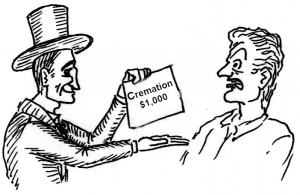
Funeral Homes & Services
Mortuary Facilitator Option
Vilcabamba
Call Jose Abad FIRST and he will handle all the details with Divino Descanso
Phone & Whatsapp: 099 375 5700
Email: Abadecuador@yahoo.com
$780 – Cremation, paperwork and return of ashes to Vilcabamba.
($730 for the cremation and $50 for Facilitator)
These must be present when the Facilitator arrives:
- Original Passport or Cedula
- $780 Cash (If the deceased has had IESS for at least one year and paid consistently for the last 6 months, the funeral home can bill IESS directly with no money required, other than the $50 for the Mortuary Facilitator.)
- Cremation Authorization Document copy
- Cremation Authorization person present to sign documents with cedula.
- Name and contact information of the Attending Physician who is available to create the Informe estadístico de Defunción(statistical death report created on line by the attending physician)
Additional fees:
$100-$300 – Mortuary to come to the place of death, initiate paperwork, prepare the body for viewing and return to pick up the body. Will depend on cause and place of death.
$150 – If Cremation Authorization document or person is NOT present – Jose Abad can take responsibility and obtain the necessary Document from a Notary and sign the Authorization.
$100 – If no Attending Physician is available to create theInforme estadístico de Defunción.
$50 – If full Cremation fee is not available initially, 50% is acceptable, with full payment required to receive ashes. Requires a trip to Loja.
$120 – Ambulance from Loja to move a patient within Vilcabamba
20% of total + Trip to Loja (Approximately) – If credit card is used.
$200-$500 – Send ashes to the United States.
$8,000-$10,000 – Send body to United States.
Regular taxi fares and time applies for additional trips related to the death.
Jose will send a picture of the Cedula or Passport to the mortuary so they can bring the required, prepared document for signature.
LOJA
Divino Descanso
Edwin Valle
Lauro Guerrero s/n y Juan Jose Samaniego esq.
07 606 0380
098 168 8266
098 950 4934
Email: edxander1781@hotmail.com
$730 for cremation, No English speakers but very accommodating and easy to work with.
Funeraria Sueño Eterno
Kleber Ordoñez
099-685-0672
Av. Occidental and Benjamín Pereira (Celi Román)
Phone: 07-2713393
Cell: 0986443044
Website
Package deal for cremation. Includes all paperwork. About $1000
They will hold the body for 48 hours, $80 for additional days
They pick up body and transport.
There is an additional fee if you wish to ship cremains or remains overseas (see section above) – $220 approximately for cremains
(They require only one Authorized Agent to authorize disposition. Jaramillo requires three)
Will work with police to handle autopsies, legal assistance, including notary and death certificate.
If someone dies and nothing is known about the deceased, they have an attorney to assist.
Jaramillo Funeraria
Jefferson Herrera
Zuly Guachisaca R.
0985543190, 0999501124
Andrés Bello and Juan José Peña
San Sebastián
servicio.cliente@fuja.com.ec
Website
Cremation, holding body for 72 hours
Same services as Funeraria Sueño Eterno
Ashes given in a wooden box
El Retorno
Av. Manuel Agustín Aguirre y Manuel Zambrano
099-807-2578, 099-847-4562, 07-254-8302
You must arrange transport of the body for cremation
(no refrigeration)
Facebook Page
Ashes are returned in a white satin bag
Room available for onsite memorial service
Parque Santa Los Rosales
(02) 264-5061; 07-254-729
Facebook Page
Cuenca
Memopaz
Address: Av. Loja 2-167 – 2 blocks south of Remigio Crespo
Phone: 07 288 3808
Cell: 099 436 0103
Website
Santa Ana Funeral Home y Camposanto
Address: Av. 12 de Abril 2-05 y Arirunbo
Phone: 07 288 8393
Website
(ALL PRICES SUBJECT TO CHANGE)
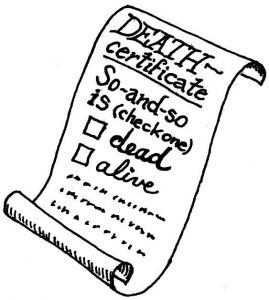
Death Certificates
Death Certificates in Ecuador are created in two steps.
The attending physician creates the Informe estadistico de DeFuncion on line, which is submitted to the Civil Registry.
The actual Death Certificate is created by the Civil Registry.
Some funeral homes offer the service of obtaining a Power of Attorney to do this procedure for you. It is MUCH easier than doing it yourself when grieving.
Informe estadístico de Defunción (statistical death report signed by doctor)
When a death occurs, it is required that an attending physician create a Informe estadístico de Defunción. As of July 2019, this process got a lot easier. Doctors now complete the Informe estadístico de Defunción on line. If you are in a hospital, the attending physician will create it. If not, you will need a doctor who has seen you and can attest to your cause of death. Without that relationship, an autopsy will be required – an unnecessary expense and desecration of the physical body.
It would behoove you to establish a relationship with a doctor, preferably in Vilcabamba, who can create this form for you. Be sure to bring your passport and cedula to your initial consultation, so the doctor will have all the data required to create the Defuncion, should the need arise.
Doctors can sign up to complete forms on line here
The National Institute of Statistics and Censuses (INEC) makes available to the public the System for Downloading Fetal Death and General Death Forms.
The death form of the INEC is the indispensable requirement for the registration of a death in the Civil Registry Offices. An administrative record that serves to keep a systematic and continuous statistics of deaths that occur in the country. Source
Sample Informe estadístico de Defunción – English
- Local authorities responsible for making findings regarding the cause of death and for issuing death local certificates in order to register a death in Ecuador, the next of kin (or funeral home appointed thereby) must obtain the INEC document (“Informe Estadístico de Defunción General”) from the attending physician or the coroner who performed the autopsy. This no-fee document, which indicates the deceased’s biographic data and cause of death, must be taken to the Civil Registry for permanent filing and issuance of the Ecuadorian death certificate. Ecuadorian death certificates can only be issued by the authorities of the Civil Registry in the location where the death took place, or by the National Civil Registry in Quito. For further information about the Ecuadorian registration process, and to see the list of Registro Civil offices, visit: https://www.registrocivil.gob.ec. Source
Certificado de Defuncion (actual death certificate)
Death certificates are created by the Civil Registry after the Informe Estadístico de Defunción has been submitted by the attending physician on line.
Before the Death Certificate can be created, they will need both your parent’s full names, along with all the deceased’s blood children. It is important that information is available to your Executor. Add that information to your Important Information Worksheet.
The Certificado de Defuncion can then be downloaded. HERE
Two death certificates are needed for expats; one is Ecuadorian and the other American. The US certificate must be issued here in the country to be valid. The second document the US issues – confirms the remains to be a US Citizen and allows for passage into the country.
Request Copies of Certificado de Defuncion

Death of a US Citizen – US Consulate Assistance
Death is a time of crisis for one’s family and friends no matter where it takes place. If death occurs overseas the experience can be even more traumatic, especially if the procedures involved are not clearly understood.
Consular officers can:
- Help identify, locate, and notify next-of-kin
- Issue Consular Reports of Death Abroad, based on the local death certificate
- Take possession of the personal effects of a deceased U.S. citizen
- Provide guidance on local burials or cremation
- Issue consular mortuary certificates for the return of remains to the United States
- S. Consulate in Guayaquil
From Monday through Friday
Between 1:00 p.m. and 3:00 p.m. – Except on local and U.S. Holidays.
For detailed information about burial and funeral costs in Ecuador or the cost of repatriating a loved one’s remains to the United States, please read the Disposition of Remains Report located on the right side of this webpage. This document also explains the local laws and facilities that impact these cases. It is important to remember that the U.S. Government is not able to assist financially with local burials or the repatriation of remains of U.S. citizens.
If a family member will not be coming to Ecuador, please note that the family may need to get a Power of Attorney giving permission to the funeral home or your representative in Ecuador to handle these affairs. The Power of Attorney, in order to be valid in Ecuador, needs to be done at an Ecuadorian Embassy/Consulate or, if is done at a U.S. notary, needs to have an Apostille and needs to be translated into Spanish.
For more information about Apostilles in the U.S. please check the Hague Convention website, usually the issuing authority will be the Secretary of State of each state.
Please contact the ACS Unit for assistance.
Additional Information
Requesting a Report of Death Abroad (equivalent to a U.S. Death Certificate)
Transporting remains to the U.S.
Personal Effects of Deceased U.S. Citizens
Statistics on Reports of Death of U.S. Citizens Abroad
For more information about Death Abroad you can access the Department of State website at travel.state.gov.
Charlie Wise is the Consulate Representative in Vilcabamba
098 509 5121
Visa Dependent Death Issues
If you are a “Dependent” of the deceased, you will need to change your Visa status, as soon as possible at the same office where you initially processed your Visa. You have a short period of time from the date of death to do so. (30 days?)
You will not have to redo your entire Visa process or prove income, just present the Death Certificate at the same office that issued the Visa.
You will need to update your cedula, as well.
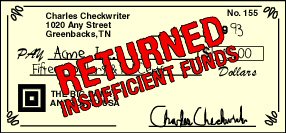
US Social Security Death Warning
As soon as US Social Security is notified of a death, they IMMEDIATELY withdraw the last Social Security payment from the deceased’s account – regardless of account balance, potentially causing an overdraft situation and added problems for your grieving loved ones or Executor.
Social security pays out benefits one month in arrears. This means that a social security check that arrives in one month is a payment for the previous month. To illustrate:
- The social security check a person receives in January covers the month of December.
- If that person passes away in January, there is no need to return the payment received that month.
- It does not matter if the payment arrives before or after the person dies within the month of January.
- Even if they die on January 1, the payment that arrives that month can be kept because it was for December.
This can cause huge and often unexpected financial problems for the Executor and survivors. Social Security will attempt to collect unavailable funds from the estate.
Using someone else’s benefits after they die is a federal crime, regardless of whether the death was reported or not.
If you need to report a death or apply for benefits, call 1-800-772-1213 (TTY 1-800-325-0778). You can speak to one of our representatives between 8:00 am – 7:00 pm. Monday through Friday.
US Social Security Survivor Benefit
Social Security’s Lump Sum Death Payment (LSDP) is federally funded and managed by the U.S. Social Security Administration (SSA). A surviving spouse or child may receive a special lump-sum death payment of $255 if they meet certain requirements. Source
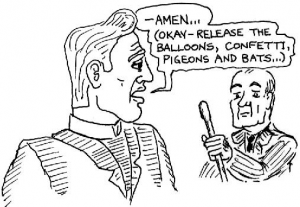
Celebration of Life
Celebrations of Life can be held anywhere – in a resort, by the river, in the park, in a home, in the Catholic Church or in a funeral home in Loja if your loved ones wish.
They can even be held before the person actually dies, which is becoming more common these days, known as Living Funerals or Living Celebration of Life. You are only limited by your imagination, budget and spiritual beliefs.
There are folks available to lead the Celebration, should your loved ones desire that. Discuss it with your Executor so your desires are known in advance.
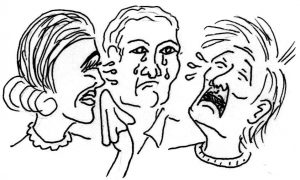
Bereavement
Grief can be a debilitating experience for the survivors. Often caregivers have been grieving for months (or even years) and their grief experience can look different from others. Everyone grieves in their own way and time.
We have Hospice Counselors in Vilcabamba who can help survivors work through their grief, if they feel the need for help.
5 Stages of Grief
Although everyone grieves in his or her own time and way, Dr. Elisabeth Kubler-Ross identified the five fundamental components, or stages of the “grief cycle”. Any given individual will most probably experience these stages in a way that is not neat and orderly.
- Denial (“This can’t be happening!”)
- Anger (“Dammit, this isn’t fair!”)
- Bargaining (“OK, I’ll clean up my act – just let me live!”)
- Depression (“Poor me, I’m dying, life sucks.”)
- Acceptance (“Thy will be done.”)
Great Resources
Cuenca Medical Resource – Excellent resource!
Why creating an end-of-life plan in Ecuador is a good idea for all expats
LET’S TALK ABOUT IT: MEDICAL EMERGENCIES & END OF LIFE HAPPEN TO US ALL

Disclaimer
Information and laws change frequently in Ecuador. This information is as accurate as possible at time of compiling 11/2019. Our goal to review and update information annually or when laws change, if possible.
The information, including but not limited to, text, graphics, images and other material contained on this website are for informational purposes only and the accuracy of this information is not guaranteed. The purpose of this website is to provide a better understanding and knowledge of some legal, medical healthcare related and other services in Vilcabamba, Ecuador that may be available in English. It is not intended to be a substitute for professional medical or legal advice, diagnosis or treatment. Always seek the advice of your physician or other qualified health care provider with any questions you may have regarding a medical condition or treatment and before undertaking a new health care regimen, and never disregard professional medical advice or delay in seeking it because of something you have read on this website. No liability will accrue to the website owner or its associates in the event that a user suffers loss as a result of reliance upon the information. (adapted from Cuenca Medical Resources)
